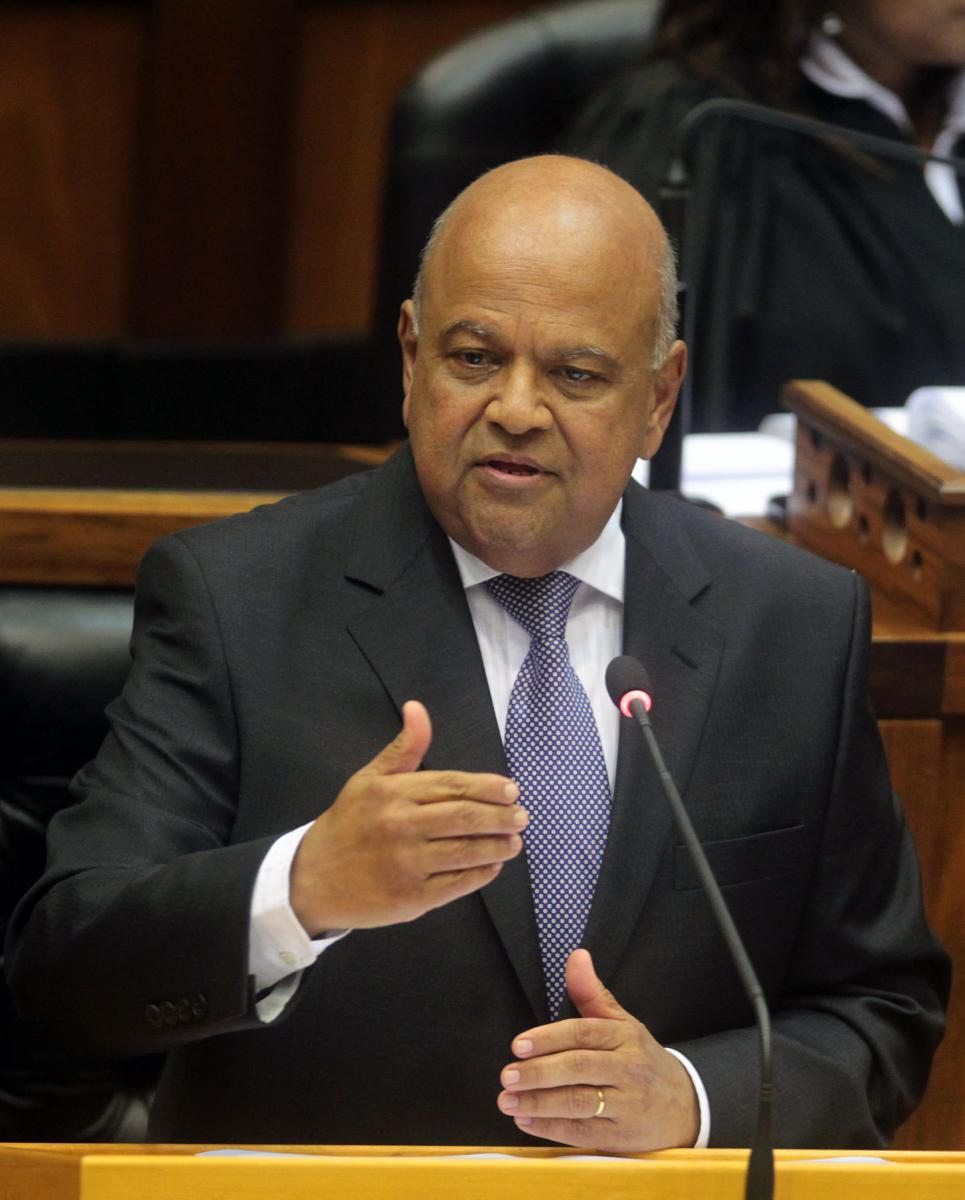Mar 2016 2nd Edition
Mar 2016 2nd Edition andile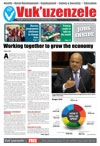
Agri-processing to boost Free State economy
Agri-processing to boost Free State economy nthabiThe Free State provincial government will be building five agri-processing centres to help grow the provincial economy and create jobs.
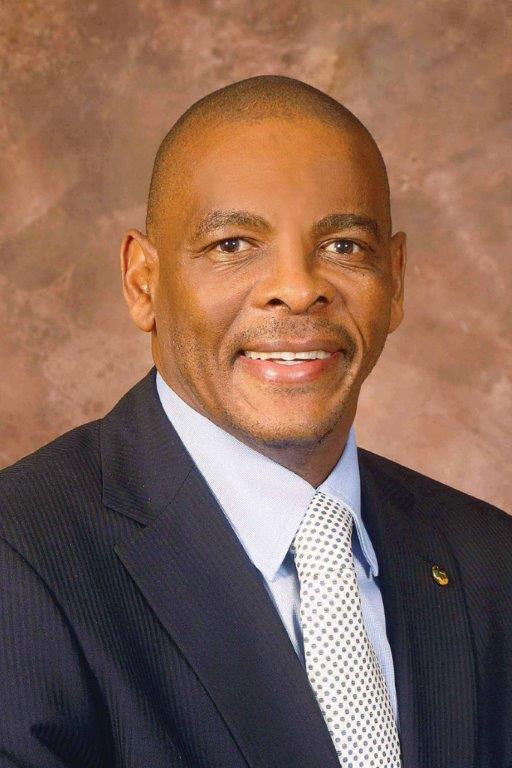 “Working with the Department of Rural Development and Land Reform, we identified five sites for the development of agro-processing centres.
“Working with the Department of Rural Development and Land Reform, we identified five sites for the development of agro-processing centres.
“The construction of the physical structures at the sites in Tshiame, Thaba Nchu, Wesselsbron, Springfontein and Parys is underway. The first Agri-park will be open for business before the end of March 2017,” said Free State Premier Ace Magashule when delivering his State of the Province Address.
As with the rest of the country, the Free State has also felt the impact of the drought.
“The impact of the drought was and still is felt on a number of terrains.”
He said the province had released an emergency drought disaster fund to the provincial department of agriculture and rural development.
“The funds were utilised for the purchase of feed in the form of protein based pellets, water reticulation support for animals and medication for livestock.”
Despite the drought challenge, the province has been able to maintain more than 5 000 jobs in the agricultural sector.
Education must meet the needs of people
Premier Magashule said education must meet the needs of people in the province.
“Our approach to the school hostel programme is indicative of our patriotic duty to give all children access to quality education.”
Between 2009 and 2015 the provincial education department increased the number of school hostels from 12 to 35.
He said the hostels accommodate more than 4 000 learners most of whom are from farms in the province.
“We are confident that putting learners in a safe and conducive environment will reduce the rate of learner drop-out and improve the learner pass rate,” said Premier Magashule.
Four new hostels will be built over the 2016 medium term expenditure framework. These will be at Leboneng Special School in Welkom, Boitumelong Special School in Thaba Nchu, Breda Farm School in Fouriesburg and
Oranjekrag at Gariepdam.
New health infrastructure
Premier Magashule said new infrastructure projects such as the Albert Nzula District Hospital in Trompsburg and the Pelonomi ICU will soon become operational.
“The Senorita Ntlabathi Hospital in Ladybrand is operational and will be officially opened in April 2016. The Schonkenville, Batho, and Amelia clinics will be completed. We will build new clinics in various towns in the province this year.”
Early Childhood Development facilities
The premier emphasised the importance of the development and care of children for a healthy and productive citizenry.
“We are funding 941 Early Childhood
Development (ECD) facilities benefitting over 48 000. Additional centres will be built in
Vogelfontein, Botshabelo, and Thaba Nchu in the forthcoming year.”
The province has also partnered with the National Lottery Commission for the provision of ECD infrastructure and equipment in 11 municipalities.
The Premier also announced that a state-owned substance abuse treatment centre would be built in the province before the end of the 2016/2017 financial year.
A site on the premises of the Botshabelo Hospital in the Mangaung Metro has been identified for this purpose.
“Two learnership programmes for 50 Social Auxiliary Workers and 50 Child and Youth Care Workers will be implemented with the intention of absorbing them upon completion of the programme.”
Human Settlements
Premier Magashule said over the past two financial years more than 9 000 housing units across all human settlements programmes were built.
“Over 1 000 units of the Brandwag Social Housing project will be completed by June 2016.”
He said the development of 400 of the 950 social housing units at Hillside View will also be completed by June 2016.
“The development of Community Residential Units is underway at Dark and Silver City Hostels in Mangaung, Masimong and G Hostel in Welkom, Merriespruit in Virginia and Hostel 4 in Sasolburg.”
Local economic development
Work in supporting local economic development is ongoing.
“Rezoning for the establishment of solar farms in Theunissen, Bloemfontein, Fauresmith and Hoopstad has been successfully completed. This project will create at least 700 job opportunities during the construction and operational phases.”
He added that about 150 local people in Phumelela will benefit from the building of a precinct on the N3 route, with two filling stations, truck stop, police station, commercial and accommodation facilities.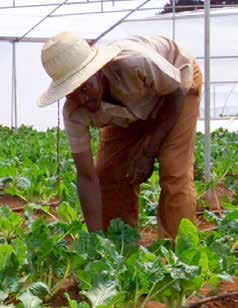
Bursary programme continues to change lives
Bursary programme continues to change lives JoyFrom studying in a shack, with holes and no electricity, in the dusty streets of Braandvlei on the outskirts of Randfontein (West of Johannesburg) to obtaining two distinctions in Grade 12, Sithelosethu Sigwela is on his way to living his dream and changing his life.
The 20-year-old from Ithuteng Secondary School excelled in his studies despite challenges faced, proving that nothing can stand in his way of achieving success. He is one of the 40 recipients of the Randfontein Local Municipality’s mayoral bursary, which has given him a chance to study further at the University of Johannesburg.
The bursary scheme has received a cash injection of more than R12 million over the past 10 years since its inception. So far, 176 pupils have benefited from the scheme and 56 of them are graduates. Out of the 56 graduates, 47 have already been absorbed into the working community.
To qualify for the bursary one must obtain an average of 53 per cent in their studies and those who received the bursaries will study within the fields of Finance, Engineering, Economics and Law.
A dream come true
Sigwela is the oldest of six children and is the first in his family to not only get distinctions, but to go to university, a dream he was once sceptical of. “I thought I was going to sit at home and probably get a job as a cashier or something,” said Sigwela.
“My mother has been struggling for years now and it was even difficult for her to put me through school.” He said he wanted to be the best but sometimes couldn’t be due to financial constraints.
“There were times when I felt like giving up, but I knew I was better than that and that kept me going. “I cannot even begin to say how thankful I am to have received this bursary,” said Sigwela.
He said none of this could have been possible without endless nights of studying and the commitment he had towards his studies. He urged pupils to take education seriously, draw inspiration from his story and get a sense of what education can do for young people who continue to walk a similar path.
Speaking at the bursary awards ceremony, Randfontein Local Municipality Mayor Mzi Khumalo echoed the sentiments of the Freedom Charter, stating that the doors of learning and culture shall be open to all.
“I challenge all businesses in Randfontein and the community at large to do their bit and contribute towards the Mayoral Bursary Fund.
“Donations for a minimum of R10 per household monthly will be accepted to ensure that more pupils, who are deserving of the assistance, can be put through school the next academic year.
“The future of our youth lies not only in their hands but in ours as well,” says Khumalo who himself pledges R1 000 every month from his salary towards the bursary scheme.
The scheme is managed by a board of ten members who have been tasked with ensuring that the money spent can be accounted for.
Khumalo hopes that over the years no child in Randfontein deserving of the bursary will be left wanting and without an education.
Child abandonment is a criminal offence
Child abandonment is a criminal offence andileMany people don’t know that abandoning a baby does not only have psychological effects on a child and the parent, but also goes against the law.
Child abandonment is when a parent, guardian or person in charge of a child deserts a child without any regard for its physical health, safety or welfare. According to the department, 378 babies were abandoned at hospitals across Gauteng from 2013 to 2015.
The department said the reasons for child abandonment are, amongst others, unwanted pregnancy, lack of family support, financial constraints due to unemployment, children deserted by fathers, fear of parents, resentment towards the baby and teenage pregnancy. When a baby is abandoned hospital social workers work with various organisations and the Department of Social Development to place the child in a home or adoption agency.

“In order to address this we ensure that parents are identified and contact details are confirmed when they present for child birth. We conduct ongoing educational talks about contraceptives and the choice of termination of pregnancy in our communities. We refer expecting mothers to social workers to discuss alternative options in case they do not want to keep the baby,” said Gauteng Health MEC Qeduni Mahlangu.
The Children’s Act states that a child has been abandoned if the parent, guardian or caregiver has deserted the child for no apparent reason and there is no contact with the parent, guardian or caregiver for at least three months.
OPTIONS FOR MOTHERS
Mothers who cannot look after their babies do have options. They can:
- Apply for a Child Support Grant, which helps parents care for their children.
- Contact a social worker to assist to place the child in foster care or find adoptive parents.
Placement in foster care is temporary, while adoption is a permanent placement.
The Department of Social Development said that if there is no one available to foster or adopt the child, he or she may be placed in a child and youth care centre to receive residential care and a range of therapeutic programmes, education and healthcare.
A delay in any action or decision to be taken in the best interest of the child must be avoided as far as possible. A child’s physical and emotional security should always be taken into account.
The Department of Social Development said that child abandonment is a criminal offence and a person who abandons a child after birth may be charged with a criminal offence and be tried in a court of law.
Community members must report all cases of child abandonment to the nearest police station, child protection organisation or social worker to investigate the circumstances and to ensure placement of the child in question.
For more information, contact the Department of Social Development on 012 312 7586 or 012 3127369.
District Six redevelopment project underway
District Six redevelopment project underway nthabi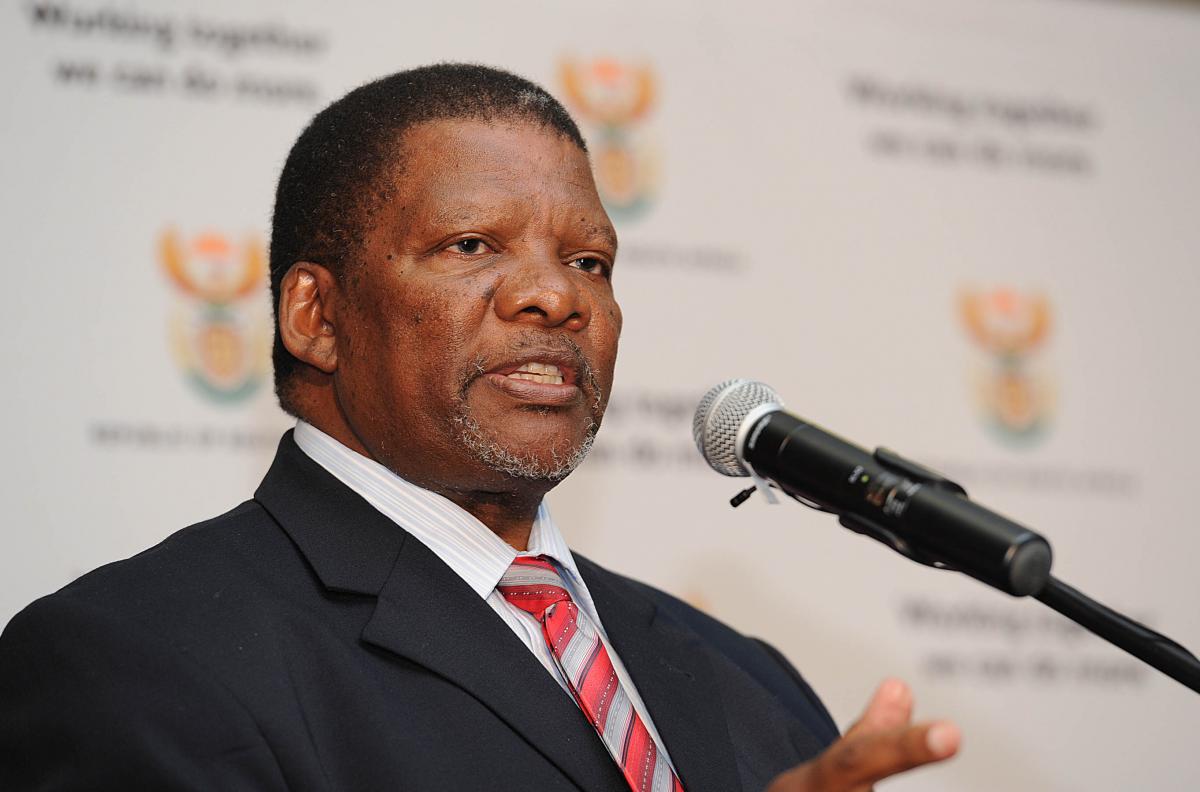 The third phase of the District Six redevelopment project – where about 108 flats and houses are being built - is currently underway.
The third phase of the District Six redevelopment project – where about 108 flats and houses are being built - is currently underway.
Minister of Rural Development and Land Reform Gugile Nkwinti visited the project recently to commemorate the 50th anniversary of the declaration of District Six as a white area.
About 60 000 people were forcibly removed under the apartheid government's Group Areas Act from the iconic inner-city suburb and dumped in single-race ghettoes far from town.
Five decades later, thousands of Capetonians are still fighting for restitution.
Minister Nkwinti said government had prioritised their land claims, but he noted that it had proven to be complex to settle claims.
Some of the difficulties include tracing some claimants, while some claimants who originally opted for financial compensation changed their minds, or the descendants battled to agree among themselves.
A total of 2 670 District Six restitution claims were submitted to government by the closing date of the initial lodgement process at the end of 1998.
Of these claimants 1 439 opted for financial compensation which saw them receiving R39.7 million in total and 1 126 claimants opted to return to the area.
The first phase of rebuilding was completed in 2004, with 24 homes handed over to elderly residents.
A second phase of 115 homes was delivered in 2012.
The new restitution claims lodgement window opened in July 2014, closing in June 2019. By December 2015, 1300 new claims had been submitted.
EC working hard to uplift communities
EC working hard to uplift communities nthabiWorking together with parents of learners to improve education, increasing the number of tourists visiting the province, upgrading provincial roads and supporting struggling municipalities are top of the agenda for the Eastern Cape government.
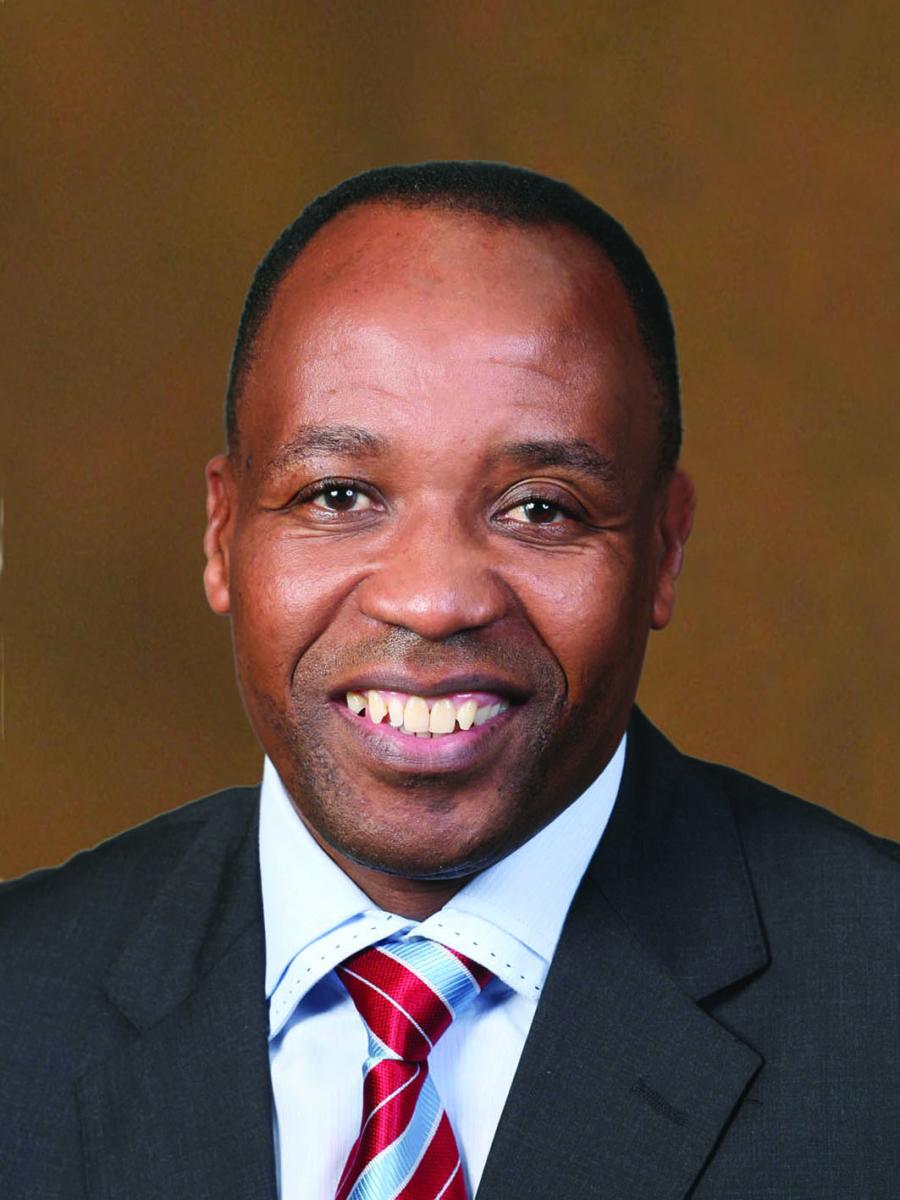 Delivering his State of the Province Address, Premier Phumulo Masualle said government and citizens of the province should work together to overcome the challenges faced by government.
Delivering his State of the Province Address, Premier Phumulo Masualle said government and citizens of the province should work together to overcome the challenges faced by government.
“These challenges are not insurmountable. Working together we can, and we will overcome them. This we shall do in fulfillment of the commitment we made to the people of the Eastern Cape to lead a collective effort towards a better life for all.”
He added that partnering with the people of the province has brought success.
“In partnership with our people, we have improved access to services for most of the citizens of our province, we have built houses and we have made health services more accessible.”
Working together with parents
Premier Masualle urged parents to protect the right of learners to education.
In Port Elizabeth recently, parents who were unhappy with government decided to keep their children away from school to send a message to the department.
“The unjustifiable acts by some sections of our communities of keeping their children away from schools as a way of expressing their displeasure with government services are unacceptable and cannot be condoned. We should at all material times protect the rights of learners to quality education.”
He also added that the provincial government would support the implementation of broadband connectivity.
“In order to assist the education e-learning initiative targeting 560 identified schools, support of broadband connectivity will be implemented.”
Boosting tourism in the province
Premier Masualle said the province should take advantage of its popularity as a tourist destination.
“The Eastern Cape is also a popular tourism destination, and more work is being done to ensure that the number of tourists visiting the province increases.”
He added that in the 2013/14 financial year, the province saw an increase in the number of people visiting.
“International tourists arrivals have improved by 9.3 percent from 2013/14 and domestic arrivals have increased by 57.2 percent, in the same period.”
Supporting municipalities
Local government plays an important role in delivering services to the people. Premier Masualle said it is important that all the struggling municipalities of the province are assisted by the provincial government and this will be done through the Back to Basics approach.
“Through the Back to Basics Programme, we are providing hands-on support to municipalities throughout the province.
“We are also rolling out War Rooms in all wards in order to promote citizen participation in planning and programme implementation.”
He added that one municipality is already getting this assistance from the programme.
“As we speak, the Chris Hani district has been leading in the rolling out of these War Rooms at ward level, with 112 of them established and functional.”
To increase efficiency and service delivery at local government level, four municipal boundaries have been re-determined.
“This will result in the amalgamation of 9 municipalities into 4 new municipal entities from July 2016. We are working hard to ensure a smooth process of amalgamation and formation of the new entities,” he said.
Helping farmers
Since 2015, the country has been experiencing by severe drought leading to the death of many animals. The provincial government has assisted farmers through different drought relief strategies.
Five districts in the province have been declared disaster areas.
“As part of our mitigation strategies, these districts were declared drought disaster areas, and to this effect more than R129 million has been reprioritised towards supporting farmers in the affected areas as part of the drought relief,” he explained.
He urged citizens to continue using water responsibly. “We cannot over emphasise the need to conserve water and minimise water wastage.”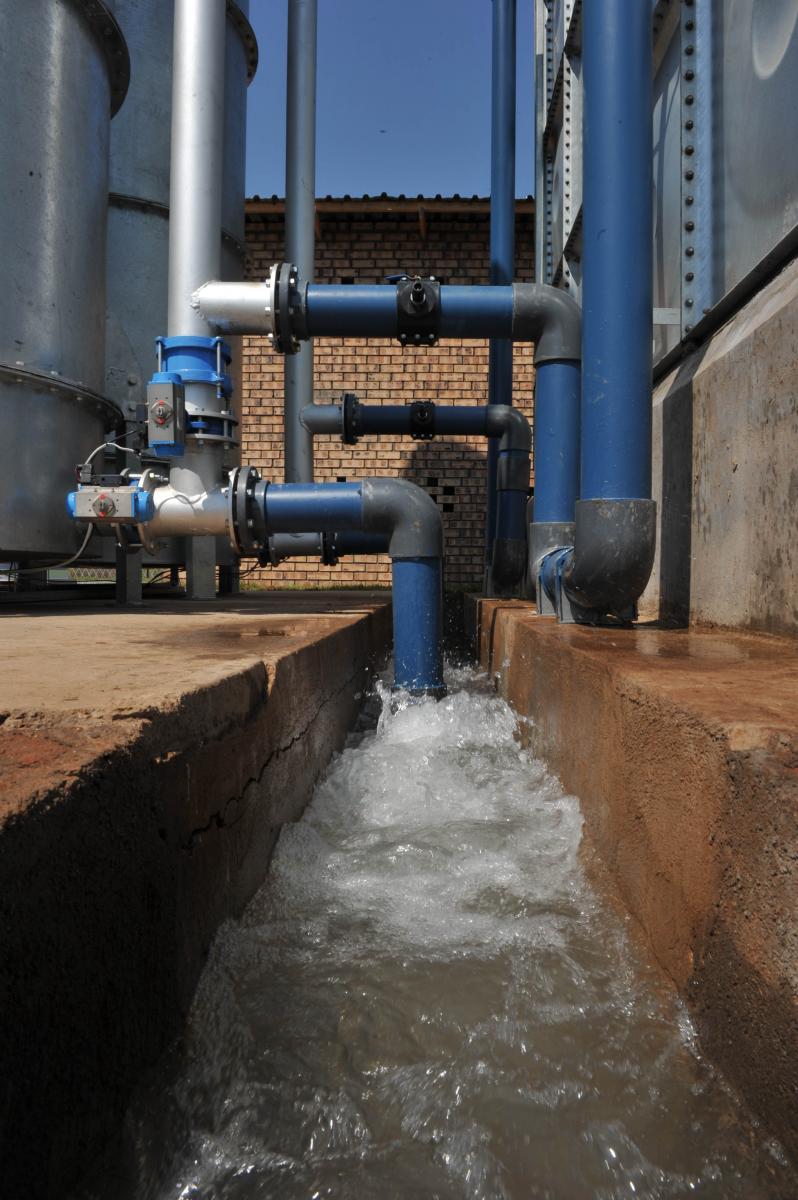
Gauteng committed to supporting the arts industry
Gauteng committed to supporting the arts industry Estelle GreeffSport, arts and culture
MEC for Sport, Arts, Culture and Recreation (SACR) Faith Mazibuko has reassured artists that the Gauteng Provincial Government is committed to working with communities to support the arts industry.
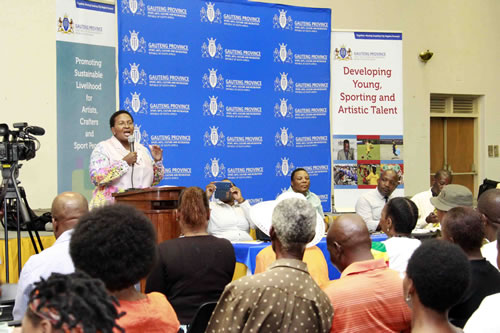 “The work you do is very important to our communities because you keep young people off the streets, thereby curbing drug abuse; it also helps us keep them safe and away from violence,” said MEC Mazibuko during a meeting with artists from communities around Gauteng.
“The work you do is very important to our communities because you keep young people off the streets, thereby curbing drug abuse; it also helps us keep them safe and away from violence,” said MEC Mazibuko during a meeting with artists from communities around Gauteng.
Since her appointment in October last year, MEC Mazibuko has met various stakeholders to ensure they also benefit from departmental programmes.
During the meeting, artists raised concerns on a range of issues including performing arts groups' struggle to find space to rehearse and perform.
Coordinator of Kasipoetics, a contemporary arts and cultural activities group based in Alexandra township, Themba Khoza said finding rehearsal and performance space was becoming increasingly difficult.
He appealed to the MEC to help performing artists deal with this challenge as it was a problem in many townships across the province.
“Preference is given to those who can afford to pay for municipal halls. Non-profit organisations don’t ever get space because we cannot pay,” he added.
Also in agreement was director of a youth group in Soweto, Sipho Nkondlo, who highlighted the cost of rehearsal and performance spaces as a challenge.
“I thought places of growth and resources like community centres would make their spaces easily accessible to student and youth productions, but instead, finding a viable space becomes more challenging than directing the production,” he said.
In response, MEC Mazibuko said the next step in fostering the growth of the township art scene was not only about building new arts facilities but also making these facilities directly available and accessible to the community.
“Youth today lack fun activities which they can do in their communities, thereby leading them to abuse drugs. The critical question we must always ask ourselves is how do we mentor and encourage them to participate in performance arts.”
She said government was committed to building a relationship with this sector of the community and wants to partner with artists to address these and many other challenges facing communities.
* Lerato Mailoane works for the Gauteng Department of Sport, Arts, Culture and Recreation
Government gets tough on fake qualifications
Government gets tough on fake qualifications Estelle GreeffFly-by-night institutions and individuals who misrepresent their qualifications are in for a tough time.
Higher Education and Training Minister Blade Nzimande said government would take serious action against them.
“Are we asking for tougher sanctions? Yes. In any case, if you lie about your qualifications or you produce a false certificate, it is fraud already in terms of existing laws.
“The problem that we normally have is that people take this so lightly, they don’t report it. When they sometimes report, it is taken as a minor offence,” he said.
The issue of fake qualifications has made headlines in recent times, a trend that has prompted government to prioritise the matter.
The Minister said this practice needed to be rooted out as it had the potential to discredit the integrity of the country’s qualification system.
He added that government was concerned about an increase in incidents of people lying about their qualifications or the presentation of forged certificates, as well as institutions that were either unregistered or were offering qualifications that are not registered.
“We want this to be taken seriously by society as a whole so that those who are aware of people with false qualifications … or institutions that are not registered should actually report this matter either to the department or to the police.
“That is what we would like to see because we want to stamp this out for the sake of the credibility of our qualifications as a country,” he said.
Meanwhile, Social Development Minister Bathabile Dlamini said South Africa's ninth medical school opened its doors for the first intake of 60 new students at the University of Limpopo during January 2016.
Minister Dlamini, who was speaking during the Social Protection, Community and Human Development Cluster briefing, said that this is the second historically disadvantaged university to be involved in the training of medical doctors and is linked to the Presidential Project of building an academic hospital in Limpopo.
“In addition, intake at the Sol Plaatje University and the University of Mpumalanga have increased to 797 and 940 respectively,” she said.
She said with regards to student funding, government has made available R2.3 billion towards covering the 2016 no-fee increase shortfall. An additional amount of R4.5 billion has been made available for students’ historic debt benefitting over 71 000 students under the National Student Financial Scheme (NSFAS) from 2013-2015, who were owing institutions.
Government on track to meet job opportunities target
Government on track to meet job opportunities target Estelle GreeffGovernment’s Expanded Public Works Programme (EPWP) continues to make steady progress in creating work opportunities and is on course to meet its five-year target.
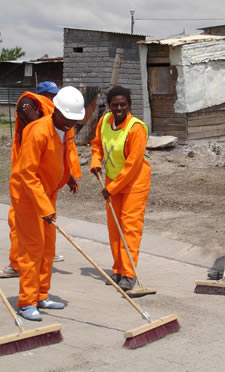 This is according to Social Development Minister Bathabile Dlamini, who briefed the media as chair of the Social Protection, Community and Human Development Cluster recently.
This is according to Social Development Minister Bathabile Dlamini, who briefed the media as chair of the Social Protection, Community and Human Development Cluster recently.
The various clusters of government hold briefings after the President delivers the State of the Nation Address to further unpack progress made in government’s Programme of Action.
The cluster includes the departments of Cooperative Governance and Traditional Affairs, Human Settlements, Public Works, Social Development, Sport and Recreation, Arts and Culture, Health, Science and technology, Basic Education, Water and Sanitation, Rural Development and Land Reform, Labour and Higher Education and Training, among others.
A Programme of Action is government’s plan to change people’s lives in the year ahead.
The EPWP is one of several interventions by government to create work opportunities and break the cycle of unemployment and poverty.
Minister Dlamini said since the inception of the EPWP Phase 3 in the Eastern Cape in April 2014, about 1.5 million work opportunities had been created against a set target of six million work opportunities by 2019.
The EPWP has maintained over 40 000km of provincial access roads and serviced 595 schools through food production gardens
operating within the National School Nutrition Programme (NSNP).
“In order to assist with the rollout of the various EPWP training programmes, the EPWP has partnered with the Agricultural Sector Education and Training Authority, the Culture, Arts, Tourism, Hospitality and Sport Sector Education and Training Authority as well as the Manufacturing, Engineering and Related Services Sector Education and Training Authority to train 3 922 EPWP participants by 31 March 2016,” said Minister Dlamini.
Through the Non-Profit Organisations (NPOs) programme of the EPWP Non-State Sector (NSS), the Department of Public Works has continued to work with civil society
organisations that create work opportunities for the poor and unemployed.
Three hundred NPOs will be contracted to implement the NSS programme on behalf of government across all provinces in 2016/17.
“We hope that we can continue working together on the critical issues of social protection, community and human development.
“We must work together to encourage creative methods to meet the needs of citizens that have made our country a great place to live,” the Minister said.
Govt programme saves jobs
Govt programme saves jobs nthabiAlthough it is small in size, South Africa’s textile industry has played a key role in creating jobs and contributing to growing the economy.
Over the years, the local industry has been badly affected by the influx of fabric from other countries, resulting in a number of factories closing down and jobs being lost.
However, some – like Da Gama Textiles in the Eastern Cape – have managed to weather these pressures, thanks to a government initiative aimed at promoting competitiveness in the manufacturing arena and ensuring job retention in the sector. The business was on the brink of collapse and had to retrench staff because it could not compete with the cheap fabric imported from abroad.
“Due to the state of our machinery, we could not compete with other spinners in the country because we could not reinvest in modern machinery,” said Da Gama’s Financial Director Ryan Brent.
The company was forced to close its East London plant, which was mainly for the spinning of cotton into yarn, and also had to decrease staff numbers at its Mdantsane and Zwelitsha factories over the years.
It was while the company was hanging on by a thread that the government decided to step in and help the textile industry.
“The textile industry was highlighted as an industry that needed support because it is labour intensive and has the potential to create jobs which is aligned with government’s mission of supporting job-creating initiatives,” explained Brent.
About five years ago, the Department of Trade and Industry (dti) and the Industrial Development Corporation (IDC) established the Production Incentive Programme (PIP) aimed at supporting companies in the textile industry.
“We applied for the grant and were granted between R17million and R20 million per year. That started in 2011. We used that money to buy new machinery.”
Brent added that the grant by the dti and IDC helped to save the remaining jobs and has helped Da Gama become a competitive company in the textile industry.
“With the first load of funding that we received, we bought new weaving looms and our product is now cheaper than imported fabric. If we didn’t purchase those looms, we would not be competitive at all and would not have saved the jobs that we still had.”
Currently, Da Gama employs just under 700 people – the majority of which are from Zwelitsha and surrounding towns.
“At the moment, we have about 500 weekly paid staff and about 170 admin staff who are all paid on a monthly basis.
One of those whose job was saved by the PIP is Given Qumza. He has worked at Da Gama for over 20 years and has grown from being an apprentice to managing the weaving in the factory.
The company empowered him by helping him to further his education. He studied for a Diploma in Textile Technology at the former Technikon Natal, now Durban University of Technology.
“I spent three years at technikon but mostly it was practicals here at Da Gama and I’m glad that I survived that because I started a bit late at tertiary level. At the time, I was 30-years-old,” he said sheepishly.
After completing his diploma, he worked at the East London plant as a quality co-ordinator before moving up the ladder to become quality superintendent.
“I had to work in both East London and King William’s Town doing quality audits at those two plants. I was also in charge of the lab.”
In 2001, Da Gama sent him to Rhodes University where he studied for a management degree.
“It was not easy. You have to pull up your socks; the route to management is not as simple as it seems.”
Currently, he supports his mother, two brothers, wife and four kids. Had it not been for the dti’s incentive programme, Qumza would not be able to take care of his dependents.
Growing the economy, creating jobs
Growing the economy, creating jobs Estelle GreeffState of the Province Address
Gauteng Premier David Makhura used the State of the Province Address to not only take stock of the progress that the province has made, but to also announce bold plans that aim to grow the economy and create jobs in the province.
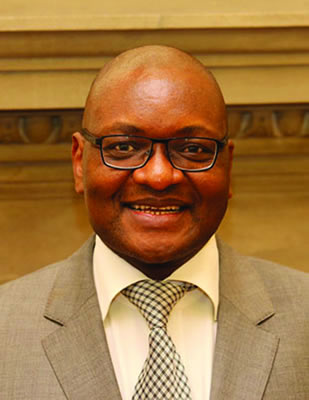 “Gauteng contributes 42 percent to national employment and has the highest labour absorption rate.
“Gauteng contributes 42 percent to national employment and has the highest labour absorption rate.
“During the past twelve months of the fifth administration, 191 000 jobs were added to the formal Gauteng economy, while the informal sector created 150 000 new jobs,” said Premier Makhura during his State of the Province Address.
He added that 220 642 job opportunities had been created through the EPWP since 2014.
Developing the township economy
The Premier said significant progress is being made in empowering township-based enterprises, cooperatives and SMMEs.
“We will demonstrate that the township economy is becoming a beehive of activity with regard to innovation, entrepreneurship, empowerment and decent employment.”
A total of R1.8 billion has been spent on buying goods and services from township enterprises. In addition municipalities are spending R1.6 billion of their procurement budgets on township enterprises.
“The number of township enterprises benefiting from the initiative has increased from 400 to 1 805 township enterprises that are now benefitting from procurement spend.”
A further 5 321 SMMEs have been registered onto the procurement database.
The Gauteng government is also renovating and revitalising township hubs and industrial parks.
Improving public transport
Efforts to improve the province’s transport system into a modern, integrated, safe, reliable and affordable system are bearing fruit. The Premier announced that the City of Johannesburg’s Bus Rapid Transport (BRT) system was progressing well. “The expansion of the third phase of the BRT to Alexandra, Sandton, Midrand, Ivory Park and Randburg is progressing well.”
In the City of Tshwane the A Re Yeng is now operational in the CBD of Tshwane and is being rolled out to Mamelodi, Atteridgeville, Soshanguve, Garankuwa and Mabopane.
“In Ekurhuleni, the construction of 3.6 km of dedicated lanes and stations has been completed. The first phase of Ekurhuleni’s BRT system, Harambee, from Tembisa to Isando, is under way and will be operational in July this year,” he said.
Gautrain
The Gautrain has contributed R20 billion to the economy of the Gauteng City Region. During its construction 122 000 jobs were created and 600 more jobs during its operation.
In response to the growing demand for Gautrain services, 48 new trains will be added to the fleet, at a cost of R 3.5 billion, underwritten by the Development Bank of Southern Africa. This investment will create more than 9 000 jobs.
Boosting local manufacturing, creating jobs
The Premier said since 2009, 474 new locomotives have been manufactured by Transnet in Koedoespoort, Tshwane.
“In the past financial year 169 Metrorail trains were refurbished in Tshwane, Joburg and Ekurhuleni.”
A total of 2 433 minibus taxis were assembled in Springs in Ekurhuleni, since 2012. In addition, 608 busses for BRTs, Metrorail and Gautrain are being assembled in the West Rand and Ekurhuleni.
The new Gautrain rolling stock will be manufactured locally.
Agriculture
The Vereeniging Fresh Produce Market is currently being refurbished, upgraded and modernised.
Education
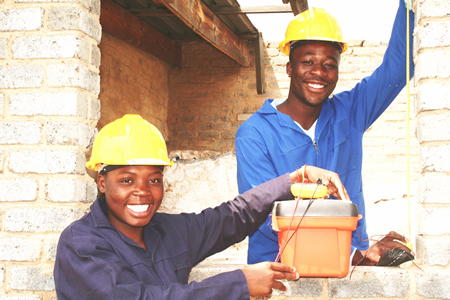 The Premier said education is the greatest investment any nation can ever make.
The Premier said education is the greatest investment any nation can ever make.
Currently the province supports 1.1 million learners who attend no-fee schools and 1.3 million learners receive a meal daily.
“A total of 82 936 learners who live more than 5km from the nearest schools, are being transported to ensure un-interrupted schooling,” added Premier Makhura.
The province has also registered more than 2 000 Early Childhood Development centres.
“In 2014, the provincial government launched the Classroom of the Future. In 2015 we only had seven schools connected to e-learning platform.”
The number has increased to 1 861 Grade 12 classrooms, 3 098 Grade 11 classrooms and 42 schools connected to the e-learning system.
The province has also committed to increasing the number of special schools in the townships.
“To date eight special schools have been built. A further 18 schools will be opened this year.”
Empowering the youth
Tshepo 500 000, launched in 2014, is changing the lives of many young people with training, entrepreneurship development, mentorship and job placements for youth and unemployed graduates.
In the past 13 months, more than 158 000 young people have been recruited to participate in the various programmes of Tshepo 500 000. A total of 37 446 young people who were trained.
More than 19 000 aspiring entrepreneurs have been trained, 535 of whom are now registered entrepreneurs and 79 have fully operational businesses.
Internship Program: Department of Water and Sanitation
Internship Program: Department of Water and Sanitation andileThe Department of Water and Sanitation invites the following candidates to apply for the below – mentioned program: Internship Program in Information Technology
Requirement: National Diploma, Degree or equivalent Information Technology qualifi cation (NQF 6 or higher). Salary: R 132 399 stipend salary (level 05) The following fi elds of study must apply:
Successful candidates will receive a monthly stipend as informed by the relevant departmental policy. To be eligible for an internship from the Department for the abovementioned study directions, applicants must satisfy the following conditions:
- Successfully completed theoretical studies
- Unemployed
- No relevant workplace experience
- Between the age of 17 and 35
- Candidates who previously participated in the Internship Programme will not be considered.
Interested candidates should apply using the form Z 83 (obtainable at any government office), and must include certified copies of the documents mentioned below.
Failure to comply will automatically disqualify candidates:
- A certified copy of South African identity document;
- A recent CV
- A certified copy of the completed qualification and or results, if applicable;
- A comprehensive academic history on completed theoretical studies if candidates are still in need of the experiential training portion to complete the qualification;
CLOSING DATE 25 MARCH 2016
APPLICATIONS: Please forward your applications quoting the relevant reference number to the Department of Water and Sanitation, Private Bag X 350 Pretoria 0001 or hand deliver at Continental Building, corner Cnr Visagie and Bosman, street, Pretoria. For attention: Ms C Mazibuko.
NOTE: Only applications for internships in the above-mentioned fields of study will be considered Applications must be submitted on a signed and dated form Z83, obtainable from any Public Service Department, and should be accompanied by a comprehensive CV as well as certified copies of qualifications and Identity Document. For all posts, please forward your application quoting the relevant reference number, to the address mentioned at each post. No late, faxed or e-mailed applications will be accepted. Note: If you have not heard from us within two (2) months of the closing date, please accept that your application was unsuccessful.
Preference will be given to previously disadvantage groups. If no suitable candidates from the unrepresented groups can be recruited, candidates from the represented groups will be considered. Successful applicants will be required to undergo standard Government security clearance procedures and verification of qualification prior to permanent appointment. Should you be in a possession of a foreign qualification(s), it must be accompanied by an evaluation from South African Qualification Authority (SAQA).
PEOPLE WITH DISABILITIES ARE HIGHLY ENCOURAGED TO APPLY.
Jobs: Basic Education March 2016
Jobs: Basic Education March 2016 andilePlease visit the Department of Education’s website at www.education.gov.za or the Department of Public Service and Administration vacancy circulars at www.dpsa.gov.za for the comprehensive advertisements which include all requirements, attributes and duties of the posts. NB: Candidates will be required to undergo a competency test and will be subjected to a security clearance. Applications must be submitted on form Z83, obtainable from any Public Service department and must be accompanied by a comprehensive CV and certified copies of qualifications.
Please forward your application, quoting the reference number, to: Ms M Thubane, Department of Basic Education, Private Bag X895, Pretoria 0001 or hand deliver to Sol Plaatje House, 222 Struben Street, Pretoria. Correspondence will only be entered into with short-listed applicants.
Closing date: 18 March 2016. Late/faxed/e-mailed applications will not be considered.
Enquiries: Ms M Thubane, tel. (012) 357-3297
Branch: ASIDI
ASIDI Programme Director
Contract type: Fixed term: 3 years
Salary: All-inclusive remuneration package of R1 042 500 per annum (Ref. 125249/3)
Primary task: Team Leader and Programme Management The Programme Director for the Accelerated Schools Infrastructure Development Initiative (ASIDI) is accountable to the Head of Infrastructure of the Department of Basic Education. The primary objective of the ASIDI Programme Director is to act as the central coordinator and manager of all the activities associated with the ASIDI Programme, including managing the members of the ASIDI Project Team and to ensure speedy and successful delivery of all the identified and duly approved projects under the ASIDI Programme. In pursuit of this primary objective, the ASIDI Programme Director would be required to possess the following:
Requirements:
- A Bachelor’s degree or equivalent qualification in the built environment (eg Engineer, Architect or Quantity Surveyor)
- Postgraduate degree in the relevant field will be an added advantage • At least 15 years’ experience in being active in the relevant professional field
- Membership of a Professional Body for the relevant area of expertise • Registration as a Professional Practitioner with the relevant Professional Body
- Qualification as a Professional Project/Programme Manager with either PMP, PRINCE2 or MSc in Project/Programme Management
- Proven experience and track record of managing and leading project teams.
Director: Engineering Planning Services
Contract type: Fixed term: 3 years
Salary: All-inclusive remuneration package of R864 177 per annum (Ref. 125249/2)
The Director: Engineering Planning Services is accountable to the Head of Infrastructure of the Department of Basic Education. The primary objective of the Director: Engineering Planning Services is to provide assistance on strategic planning processes of the Infrastructure Branch of the Department of Basic Education on matters pertaining to the provision of education infrastructure including providing technical guidance on the ASIDI Projects and other infrastructure projects that are affected by the School Rationalisation Process. In pursuit of this objective, the Director: Engineering Planning Services would be required to possess the following:
Requirements:
- A Bachelor’s degree or equivalent qualification in the Built Environment (eg Engineer, Architect or Quantity Surveyor)
- A postgraduate degree in a relevant field of study • At least 10 years’ experience in being active in the relevant professional field
- Membership of a Professional Body for the relevant area of expertise • Registration as a Professional Practitioner with the relevant Professional Body
- Qualification as a Professional Project Manager with either PMP, PRINCE2 or MSc in Project Management
- Experience in leading and managing multi-disciplinary teams • Proven track record in strategy development.
ASIDI Project Manager
Contract type: Fixed term: 3 years
Salary: All-inclusive remuneration package of R864 177 per annum (Ref. 125249/4)
The Project Manager for the Accelerated Schools Infrastructure Development Initiative (ASIDI) reports to the ASIDI Programme Director and is accountable to the Head of Infrastructure of the Department of Basic Education.
The primary objective of the ASIDI Project Manager is to ensure effective management of various Implementing Agents that are appointed to the ASIDI Programme and to ensure speedy and successful implementation of all the projects assigned to him/her under the ASIDI Programme. In pursuit of this primary objective, the ASIDI Project Manager would be required to possess the following:
Requirements:
- A Bachelor’s degree or equivalent qualification in the built environment (eg Engineer, Architect or Quantity Surveyor)
- At least 10 years’ experience in being active in the relevant professional field
- Membership of a Professional Body for the relevant area of expertise
- Registration as a Professional Practitioner with the relevant Professional Body
- Qualification as a Professional Project Manager with either PMP, PRINCE2 or MSc in Project Management
- Proven track record in effectively managing a number of infrastructure projects simultaneously
- Proven track record in managing project teams.
Jobs: Department of Human Settlements March 2016
Jobs: Department of Human Settlements March 2016 andileApplications: Must be forwarded to URS Response Handling by post: P O Box 11506, Tierpoort, 0056 / email: dohs@ursonline.co.za / fax: 086 654 1819. Applications may also be submitted online at: www.ursonline.co.za (including all required documents as one attachment).
Please direct all application enquiries (including hand-delivery options) to: URS Response Handling, tel. (012) 811 1900. The Department of Human Settlements is an equal opportunity, affirmative action employer. It is our intention to promote representivity (race, gender and disability). The Candidature of persons whose transfer/promotion/appointment will promote representivity will receive preference.
It will be expected from the selected candidates to be available for the interviews on a date, time and place as determined by the Department of Human Settlements. Applicants must note that further checks will be conducted once they are short-listed and that their appointment is subject to positive outcomes on these checks, which include security clearance, qualification verification and criminal records. If you apply for more than one position in the Department, please submit separate application forms for each post. Applications must be submitted on form Z83, obtainable from any Public Service department and must be accompanied by a detailed CV, together with certified copies of qualification certificates and your ID/Passport. Failure to submit the required documents will result in your application not being considered.
Correspondence will be limited to short-listed candidates only. If you have not been contacted within four (4) months after the closing date of this advertisement, please accept that your application was unsuccessful.
The Department of Human Settlements is an equal opportunity, affirmative action employer. It is our intention to promote representivity (race, gender and disability) through filling these positions. To further the objective of representivity within the Department, only Women and People with Disabilities will receive preference.
Please note that these are re-advertisements, candidates who previously applied are encouraged to re-apply.
Closing Date: 19 March 2016
Chief Director: Human Settlement Planning
Salary: R1 042 500 per annum (all-inclusive salary package) Ref. No.: DOHS/05/2016 Pretoria
Requirements: The position is available for a person in possession of an appropriate Bachelor’s degree in Planning, Engineering and related disciplines in the Built Environment or equivalent qualification as well as a minimum of five (5) years experience at senior management level in the human settlements and/or housing and/or built environment sector
The candidate must have a clear understanding of the human settlements, housing and built environment and an advantage would be knowledge of and experience in strategic and operational management of planning, funding, implementation and monitoring of targets, outputs and outcomes in the built environment.
The successful candidate will be required to provide strategic leadership, management, co-ordination and administration in the development, innovation, application, maintenance, monitoring and evaluation of national human settlements and housing programme and project planning, funding and implementation, legislation, policies, plan and implementation frameworks.
- The successful candidate will be required to lead, develop and build coalitions, networks and partnerships in the development, implementation and monitoring of necessary required frameworks to ensure that the Department is able to achieve its mandate from relevant funding sources
- Good programme and project management skills, knowledge, understanding and experience will be required of the successful candidate including the ability to develop strategies, manage and operationalise plans and frameworks and the implementation thereof
- Good administrative and organisational skills
- Good knowledge of the PFMA and other relevant legislation
- The ability to build and maintain sound interpersonal relations
- Proven skills in both written and verbal communication and the ability to work under pressure in a rewarding but demanding environment
- A valid driver’s licence is also required.
Duties: The incumbent will be responsible for:
- The strategic and operational management of the devising, creation, innovation and development of the required human settlements and housing planning frameworks and instruments as required and consistent with the mandate as required in terms of legislation, policy, regulations and development objectives of the Department
- Ensure that the Department achieves intergovernmental, sector and societal planning alignment, outputs, targets and outcomes as consistent with the National Development Plan, Strategic and Annual Performance Plan and Medium Term Strategic Framework of Government and Department
- Manage the strategic operations of the Department related to macro intergovernmental and sector planning for the application of government funding for human settlements and housing
- Provide strategic and operational development, implementation and application of human settlement and housing development planning frameworks at national, provincial and municipal level and with private sector partners and communities
- Provide policy, implementation, monitoring and evaluation support related to the Department’s strategic planning outcomes
- Manage and provide leadership for the Chief Directorate including human resource, financial and administrative management of the Unit
- Perform priority tasks as required by the Director-General.
Enquiries: Mr N. Chainee, tel. (012) 421 1603.
Branch: COO Chief Directorate: Regulatory Compliance
Director: Entities Oversight
Salary: R864 177 per annum (all-inclusive salary package)
Ref. No.: DOHS/04/2016, Pretoria
Requirements: The position is available for a person in possession of a Bachelor’s degree or equivalent qualification in Corporate Law, Economics, Financial Management, Public Administration/Management or Monitoring and Evaluation
- A management qualification will be an advantage
- The suitable candidate must have five (5) years experience at middle/senior management level
- The suitable candidate must have knowledge and experience of state owned public entities
- He/She must have a good working knowledge of corporate governance, financial management, performance monitoring and evaluation, compliance monitoring; as well as the application of the PFMA and applicable corporate governance protocols in the public sector
- Knowledge of the financial Human Settlements policies and legislation will be an added advantage
- The candidate must have good communication skills, performance analysis skills and report writing skills and must be able to work under pressure and maintain sound interpersonal relations
- A valid driver’s licence.
Duties: The incumbent will be responsible for:
- Monitor and evaluate financial and nonfinancial performance of the human settlements public entities against approved MTSF and annual performance targets
- Ensure compliance and good corporate governance of the human settlements entities in line with their mandating legislation and with applicable corporate governance laws, regulations and protocols such as the PFMA and Treasury Regulations and the King III Code
- Administer and manage the process of establishment, review and rationalisation of the mandates and corporate forms of the human settlements entities
- Facilitate and support the processes for the appointment of the Boards/ Governance Structures of the human settlements public entities
- Overall management of human resources, financial management and risk management of the Directorate: Entities Oversight.
Enquiries: Ms T. Moloi, tel. (012) 421 1472
Branch: Corporate Services Chief Directorate: Human Resources
Director: Human Resource Administration
Salary: R864 177 per annum (all-inclusive salary package)
Ref. No.: DOHS/03/2016 Pretoria
Requirements: Applicants must have an appropriate Bachelor’s degree/National diploma with a minimum of five (5) years experience on middle management level
- Knowledge of the Public Service Act, Public Service Regulations, PFMA and Treasury Regulations as well as DPSA Directives on HRM Matters
- Knowledge of policy development
- Knowledge of Persal
- Computer literacy, problem solving, analytical and research skills as well as written and verbal communication will be important
- The ideal candidate must be creative, customer focused and Client Orientated, possess good presentation and have excellent negotiation skills coupled with people management skills.
Duties:
- Render a responsive and effective recruitment and selection services •Manage and implement conditions of service for employees •Manage and maintain the PERSAL System
- Manage human capital records (HR Registry) •Manage Organisational design, Job Evaluation and Performance Management and Development systems •Coordinate the development and review of the HR Plan and the consolidation of the implementation reports
- Management of the Directorate’s resources.
Enquiries: Mr T. Ramovha, tel. (012) 444 9111.
Jobs: Department of Justice and Constitutional Development Mar 2016
Jobs: Department of Justice and Constitutional Development Mar 2016 andileNOTE: Interested applicants may visit the following website: www.justice.gov.za or www. dpsa.gov.za to view the full job specification of the above positions. Applications must be submitted on Form Z83, obtainable from any Public Service Department or on the internet at www.gov.za. A Z83 form & CV must be accompanied by original certified copies of qualifications and identity document and a driver’s licence where necessary. A SAQA evaluation report must accompany foreign qualifications. Applications that do not comply with the above mentioned requirements will not be considered. All shortlisted candidates for SMS posts will be subjected to a technical exercise that intends to test relevant technical elements of the job, the logistics of which will be communicated.
Following the interview and technical exercise, the selection panel will recommend candidates to attend a generic managerial competency assessment (in compliance with the DPSA Directive on the implementation of competency based assessments). Candidate will complete a financial disclosure form and also be required to undergo a security clearance. If the candidate is applying for an OSD post, certificates of service must be attached to the CV.
The DOJ&CD is an equal opportunity employer. In the filling of vacant posts the objectives of section 195 (1) (i) of the Constitution of South Africa, 1996 (Act No: 108 of 1996), the Employment Equity imperatives as defined by the Employment Equity Act, 1998 (Act No: 55 of 1998) and relevant Human Resources policies of the Department will be taken into consideration. Reasonable accommodation shall be applied for People with Disabilities including where drivers licence is a requirement. Shortlisted candidates will be subjected to a personnel vetting process. Correspondence will be limited to shortlisted candidates only. If you do not hear from us within 3 months of this advertisement, please accept that your application has been unsuccessful. The department reserves the right not to fill these positions. Women and people with disabilities are encouraged to apply and preference will be given to the EE Target.
Closing date: Closing date Is 29 March 2016
Director: Court Administration: (2 POSTS)(2 POSTS)
(These posts are re- advertisements; candidates who previously applied are encouraged to re-apply)
Reference: 082/15/NC REFERENCE NR: 2015/238/GP
Package: R864 177 – R1017 972 per annum (All inclusive). The successful candidate will be required to sign a performance agreement.
Requirements: An under-graduate qualification (NQF level 7) as recognized by SAQA; A minimum of six (6) years’ experience at middle/senior mangement; Experience in Court Management will serve as an added advantage; Knowledge of legislation prescripts and Frameworks of the department; A valid driver’s licence.
Enquiries: Mr D. Plaatjies (053) 802 1300
Family Advocate LP8 Reference: 16/25/FS
Family Advocate LP8 Package: R698 286 – R983 454 per annum. (Salary will be in accordance with the OSD determination). The successful candidates will be required to sign a performance agreement.
Requirements: An LLB Degree or recognized four (4) years Legal qualification; At least nine (9) years appropriate post qualification/litigation experience; Admitted as an Advocate; A valid driver’s licence.
Enquiries: Ms. NN Sithole (051) 407 1800.
Deputy Director (Vetting Supervisor): Vetting Fieldwork
Reference: 16/59/COO
Deputy Director (Vetting Supervisor): Vetting Fieldwork Reference: 16/59/COO
Package: R674 979 – R795 090 per annum (All inclusive). The successful candidate will be required to sign a performance agreement.
Requirements: A 3 years Bachelor’s Degree/NQF 6 in Social Sciences or equivalent qualification; 3 years management and investigation experience; A valid driver’s licence
Enquiries: Ms D Modibane (012) 315 1668
Assistant Director: Third Party Funds: Financial Management
Reference: 2016/52/GP
Assistant Director: Third Party Funds: Financial Management Reference: 2016/52/GP
Salary: R289 761 – R341 313 per annum.
The successful candidate will be required to sign a performance agreement.
Requirements: A Degree/National Diploma in Financial Management or equivalent qualification; Minimum of three (3) years relevant experience in a financial accounting/management environment of which one year should be at supervisor/ junior management level; Knowledge of Public Finance Management Act (PFMA), National Treasury Regulations, Knowledge of GRAP/GAAP, accrual accounting as well as modified cash and cash accounting, A valid driver’s licence. The following will serve as recommendations: Knowledge of the Departmental Financial Instructions (DFI).
Enquiries: Ms P Raadt (011) 332 9000
Assistant Director: Financial Operations
Reference: 16/34/FS
Assistant Director: Financial Operations Reference: 16/34/FS
Salary: R289 761 – R341 313 per annum. The successful candidate will be required to sign a performance agreement.
Requirements: A Bachelor’s Degree or National Diploma in Financial or Commercial field. Three (3) years relevant experience in financial and related fields; A valid driver’s licence; Knowledge of BAS and supply chain management (SCM), incl. asset management and Operational knowledge and practical experience of JYP and JDAS would be an added advantage.
Enquiries: Ms N Sithole (051) 407 1800
Social Worker/Family Counsellor (Grade 1-4)
Reference NR: 50/14/NC
Social Worker/Family Counsellor (Grade 1-4) Reference Nr: 50/14/NC
Salary: R 196 341 – R447 171 per annum. (Salary will be in accordance with the OSD determination). The successful candidate will be required to sign a performance agreement.
Requirements: Bachelor’s Degree in Social Work or equivalent qualification; A minimum of three (3) years appropriate experience in Social Work after registration as Social Worker with the SACSSP; Registration with SA Council for Social Service Professions (SACSSP); Knowledge and experience in Mediation; Knowledge and application of Family Law, including Mediation in certain Divorce Matters Act, Maintenance Act and Domestic Violence Act (inclusive of Hague Convention on International Child Abduction); A valid driver’s licence.
Enquiries: Adv. P. Molokwane (053) 833 1062
Maintenance Officer (Mr-1 – Mr-5), (Contract Post Ending 31 March 2017) Reference Nr: 007/16/NC
Salary: R151 233 – R708 765 per annum. (Salary will be determined in accordance with OSD determination). The successful candidate will be required to sign a performance agreement.
Requirements: An LLB Degree or recognized four (4) year legal qualification; Extensive knowledge of the maintenance system; Proficiency in at least two official languages; Understanding of all services and procedures in the area of maintenance and other areas of family law; A valid driver’s licence.
Enquiries: Mr. J. Tope (053) 802 13000
Maintenance Officer (Mr1- Mr5)
Reference: 16/ 33 /FS
Maintenance Officer (Mr1- Mr5) Reference: 16/ 33 /FS
Salary: R151 233 – R708 765 per annum. (Salary will be determined in accordance with OSD determination). The successful candidate will be required to sign a performance agreement.
Requirements: An LLB Degree or recognized four (4) year Legal qualification; Experience in Family Law matters; Extensive knowledge of the Maintenance system and Maintenance Act (Act 99 of 1998) (as amended). Proficiency in at least two (2) official languages; A valid driver’s licence.
Enquiries: Ms N Dywili (051) 407 1800
KZN targets job creation, economic growth
KZN targets job creation, economic growth Estelle GreeffState of the Province Address
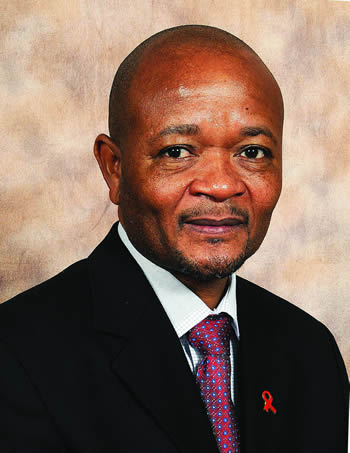 The Richards Bay Industrial Development Zone (RBIDZ) remains an engine for job creation and a catalyst for foreign direct investment in KwaZulu-Natal.
The Richards Bay Industrial Development Zone (RBIDZ) remains an engine for job creation and a catalyst for foreign direct investment in KwaZulu-Natal.
Speaking during his recent State of the Province Address, Premier Senzo Mchunu said the facility had already attracted investments of more than R6. 8 billion, including a R4.5 billion titanium plant.
Key milestones in the development of the facility include the R2 billion biomass plant, R300 million pipe manufacturing plant, R16 million paint manufacturing enterprise and the R20 million logistic services.
“The manufacturing sector is the backbone of the economy of the province. The reality is that this sector has huge demand on electricity. It is for these reasons that we are using RBIDZ to pioneer an energy production hub.
“Currently, about 20 hectares of land have been identified at the Bayside to host gas-to-power operations in an effort to yield diversified energy generation capacity from renewable sources. More than 1 800 jobs will be created during construction,” said the Premier.
MINING SECTOR
He added that the mining sector remained a critical component of the provincial economy, with great potential for beneficiation along the mineral value chain.
“In 2013, mining contributed R9.3 billion to the provincial Gross Domestic Product, which represents about 1.9 percent of the provincial economy.
The Premier noted that the province had developed a KZN Mineral Beneficiation Strategy, which is aimed at driving the minerals sector in KwaZulu-Natal towards a more profitable, socially accountable and environmentally sustainable future.
“We are currently conducting an analysis of the contribution of coal and phosphate in terms of their socio-economic development, risks and opportunities.”
UNLOCKING THE POTENTIAL OF SMMES
Premier Mchunu said more than R169.6 million in loan capital had been approved to fund cooperatives, contributing to the creation of more than 7 130 jobs.
“Our long-term goal, as government, is to ensure that our cooperatives are competitive and operate on equal footing with co-operatives in developed countries.”
In addition, the KZN Small Business Development Agency together with Ithala, provides financial and non-financial support services to the cooperative sector.
“A SMME Academy is to be established to provide the necessary skill desperately needed by SMMEs both in the formal and informal economy,” he added.
GROWING THE OCEANS ECONOMY
The launch of Operation Phakisa in the province by President Jacob Zuma a few years ago ushered in a new era for the country, said the Premier.
He added that the interest that has been generated in the maritime industry has been overwhelming and due to the interest from the sector, the province would establish the KZN Maritime Institute.
“We want the institute to focus on the production of enough skilled workforce that will ensure a sustained growth of this sector. The world fleet of over 50 000 employs about 1.4 million seafarers, this opposed to South Africa which employs about 1 500.”
TVET LEARNERS AND UNEMPLOYED YOUTH
The province has also been doing its bit to facilitate skills development.
“Currently, provincial departments have used funds from their one percent skills levy to accommodate 1 237 graduates on the Public Sector Internship Programme at a cost of more than R74 000 000, with SETA funding of R1.2 million.”
The province is also supporting 680 learners to the cost of R61 million through learnerships and apprenticeships in various fields.
PRIMARY HEALTH
The Premier said primary health care re-engineering was being prioritised to reach more children at household level.
“To reduce morbidity and mortality from cervical cancer, a total of 162 000 women were screened for cervical cancer and 136 415 Grade 4 girls received the Human papillomavirus vaccination.”
“Successes have been seen in the implementation of the prevention of mother-to-child transmission, which now stands at 1.3 percent, making the goal of an AIDS-free generation by 2030 a reality”, he added.
Premier Mchunu acknowledged the partners who had worked with the provincial over the years to turn around the situation.
AGRICULTURE AND AGRO-PROCESSING
The revitalisation of the agriculture and agro-processing value chain, was a critical component of the province’s economy to unlock growth and expand employment opportunity, he added.
“It is for this reason that we are currently implementing a KZN Agrarian Transformation Strategy, which will contribute to rural economic development, increased production, job creation and market access for farmers mainly in rural areas through their integration into global value chain.”
Groenvlei, at Emadlangeni, has been identified as Agri-village and will be prioritised for implementation in the 2016/17 financial year.
Know your Minister - Minister Lindiwe Sisulu
Know your Minister - Minister Lindiwe Sisulu Estelle GreeffLindiwe Sisulu is the Minister of Human Settlements in South Africa. She has held the position from 25 May 2014 and has been a Member of Parliament since 1994.
About the minister
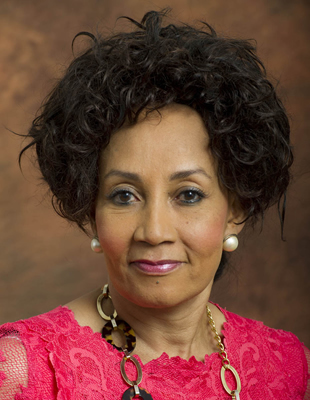 She holds a Masters of Arts degree in History from the Centre for Southern African Studies, University of York, and M Phil from Centre for Southern African Studies, University of York obtained 1989.
She holds a Masters of Arts degree in History from the Centre for Southern African Studies, University of York, and M Phil from Centre for Southern African Studies, University of York obtained 1989.
She has also obtained a Bachelor of Arts and a Bachelor Arts Honours degrees in History from University of Swaziland obtained in 1981. She obtained a Diploma in Education from University of Swaziland in 1980.
She completed her GCE Cambridge University Ordinary Level at St Michael's School in Swaziland in 1971 and GCE Cambridge University Advanced Level in 1973 also in Swaziland.
She has taught at Manzini Central High School in 1981 and lectured at Department of History of the University of Swaziland in 1982 and at Manzini Teachers Training College from 1985 to 1987.
During that period she was also a Chief Examiner of History for Junior Certificate Examinations for Botswana, Lesotho and Swaziland. She also worked as a Sub-editor of The Times of Swaziland in Mbabane, Swaziland in 1983.
About the department
The Department came into being in 1994 after the dawn of democracy. Its roots can be traced back to 1956 when the Freedom Charter was adopted in Kliptown. The clause that says: There shall be houses, security and comfort is the founding base for the department. Also the Constitution of the Republic of South Africa (1996) state that access to housing is a basic human right, the government has to ensure that an environment conducive to progressive realisation of the right.
Limpopo government is changing lives
Limpopo government is changing lives Estelle GreeffState of the Province Address
Limpopo Premier Stan Mathabatha highlighted the progress that the province has made in changing lives in the province. These include creating jobs despite economic challenges, improving road infrastructure and ensuring quality health services in the province.
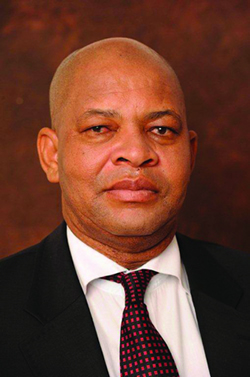 “According to Stats SA Labour Force Survey some 147 000 jobs had been created in the province in 2015. In the third quarter of 2015 59 000 jobs were created,” said Premier Mathabatha.
“According to Stats SA Labour Force Survey some 147 000 jobs had been created in the province in 2015. In the third quarter of 2015 59 000 jobs were created,” said Premier Mathabatha.
Creating jobs
In 2015, Premier Mathabatha announced a planned investment involving the South African Women Investment Holdings, Jidong Development Group and China Africa Development Fund.
“This R1.65 billion investment was for a Mamba Cement Manufacturing Company in Thabazimbi. The plant has been completed and created 231 permanent jobs and 550 temporary jobs.”
The Premier added that a further, 50 South Africans will be trained in China on how to operate this type of plant. “They will be sent in groups once the commissioning of the plant is completed.”
Improving road infrastructure
Last year Premier Mathabatha committed an amount of R1.2 billion to roll out more than 12 major road infrastructure projects across the province.
Significant progress has been made since the announcement including the building of four bridges, the upgrade of 407 km gravel roads to tar, and the rehabilitation of 173 km of tarred roads.
Drought relief
In November 2015, Limpopo was declared a disaster area. The provincial government has set aside R3 million to assist affected farmers through the provision of livestock feeds.
“An additional R51 million was also reprioritised from the Comprehensive Agricultural Support Programme (CASP) and Illima/Letšema allocations to catch up with the demand for fodder and livestock water required for the communal small scale and subsistence farmers in the Province.”
Agricultural training
The Madzivhandlila and Tompi Seleka Agricultural Colleges, which were opened last year, have increased their student enrolment. The student enrolment for both colleges has since increased from 140 in 2015 to 222 in 2016.
“The colleges are indeed fully functional and have begun to make an impact in skills development in the agricultural sector,” said the Premier.
Quality education
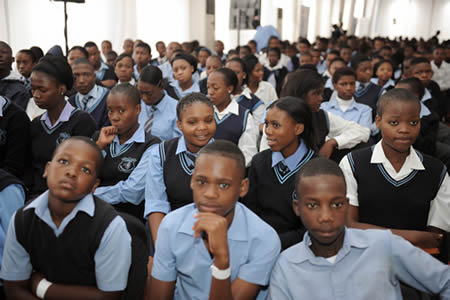 In 2015 Limpopo saw 101 575 learners write their Grade 12 examinations, an increase of 39.2 percent from 2014.
In 2015 Limpopo saw 101 575 learners write their Grade 12 examinations, an increase of 39.2 percent from 2014.
The number of learners with bachelor pass also increased from 16 325 in 2014 to 20 992 in 2015.
Premier Mathabatha announced that the province has set itself an 80 percent target.
Further, over the past three years R2.9 billion was spent on improving school infrastructure. A further R2.4 billion has been budgeted over the next three years to continue with this infrastructure delivery work in our schools.
Improving social services
The Limpopo government is working with Community Based Organisations to ensure that vulnerable groups such as children, people with disabilities, women and older persons, are protected.
“A total of 3 248 Community Based Organisations have received help from government. An amount of R4 million was transferred to the National Development Agency in the province to assist 200 Non-Profit Organisations.”
He said similar training will be provided to another 200 organisations in the next financial year.
Improving access to healthcare
The Premier also highlighted efforts by the provincial government to ensure that its citizens have access to quality healthcare.
“A total of 150 state-of-the-art ambulances were bought in this financial year. Planned Patient Transport and mobile clinics will be bought in the next financial year to assist in those areas where we still have shortages.
“By December 2015 over 38 healthcare facilities had undergone major refurbishments.” Other higlights include:
- The medical school at University of Limpopo admitted its first group of 60 students this year. These students were offered full bursaries to the tune of R10 million for their studies by the provincial government.
One of these students making history is 15-year-old Junior Mkhombo from Thulamahashe.
- The province will soon have its own academic hospital. Construction will start by November this year.
- The provincial government has also been sending young people to study in medicine in Cuba. In September last year, 110 students were sent to Cuba. To date, the province has 394 students who are at various levels of study in Cuba. Nineteen of these students will return to the province next year for their final clinical training.
Providing shelter
As at the end of January this year, the Limpopo government had built 7 740 houses. This represents a 74.2 percent increase compared to 2 000 houses we built in the previous financial year.
Major investment for infrastructure in Mpumalanga
Major investment for infrastructure in Mpumalanga nthabiThe Mpumalanga government will plough major investment into road infrastructure.

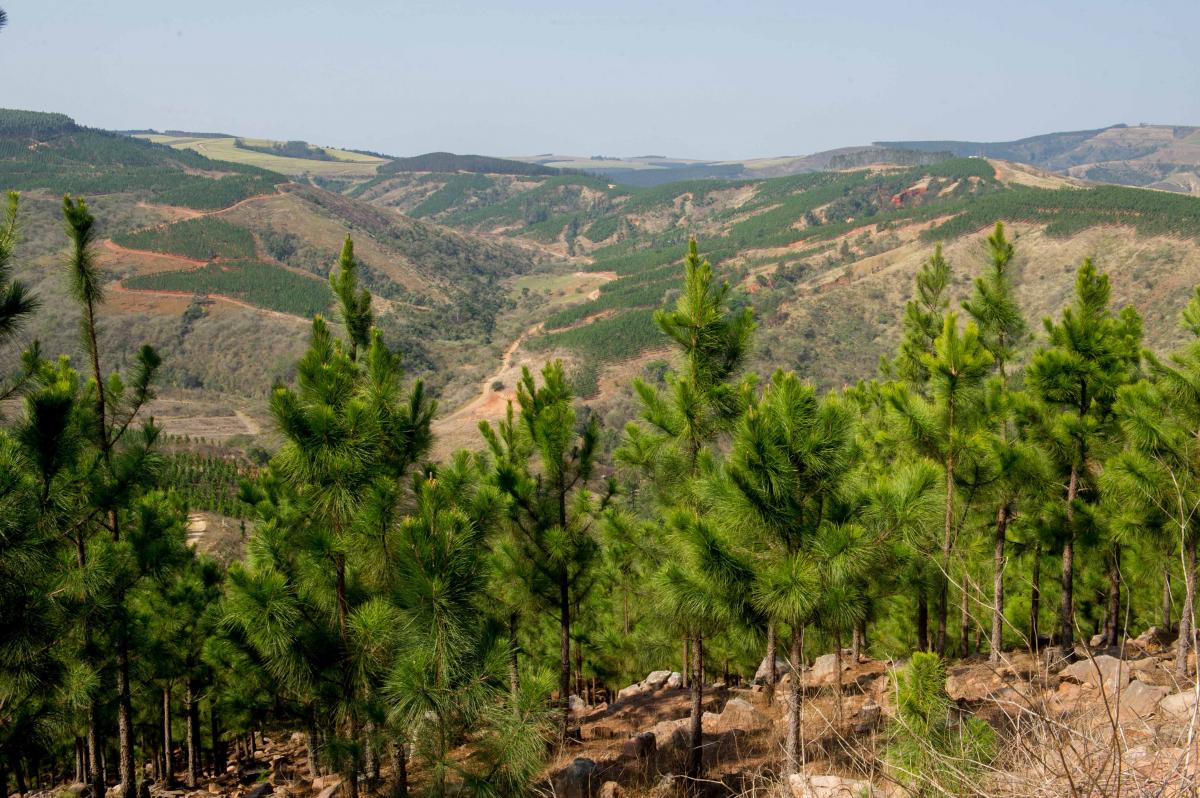 This was announced by Mpumalanga Premier David Mabuza when delivering his state of the province address.
This was announced by Mpumalanga Premier David Mabuza when delivering his state of the province address.
“In the past year alone, the province invested R2.3 billion in road construction and maintenance projects spanning the rural and urban localities of Mpumalanga.
“In the coming year, R2.4 billion has been set aside to maintain and renew road infrastructure and to increase capacity to meet projected future demand.”
He said investment in road infrastructure is targeting critical areas of need in many parts of the province to enhance mobility and access.
He added that for the 2016/17 financial year, over R4 billion has been set aside by the provincial government to deliver on socio-economic infrastructure such as roads, schools, health facilities and other critical social development infrastructure.
Towards Industrialisation
Premier Mabuza said the province made progress in economic growth and job creation.
“Our key instrument in this regard is our recently adopted provincial industrial development plan. This plan, is the seminal strategy for implementing high impact, integrated and diversified industrialisation programmes in the province.”
The focus of the plan includes labour intensive manufacturing industries and the development and localisation of supply chains that will provide local suppliers with access to the major industries in the province.
“For this to happen, we are inviting the private sector and key industry players in the province to join us as we catalyse economic growth and improve prospects for job
creation.”
He added that for the 2016/17 financial year the province will focus on mobilising partners and private sector investment.
Agriculture and Forestry
Premier Mabuza said the South African Forestry Companies Limited (SAFCOL) has committed to work with the province to establish the Forestry Technology Park in Sabie.
“Thaba Chweu municipality has committed to making land available for this initiative.”
He added that the province would continue to prioritise the revitalisation of agriculture and the agro-processing value chain as key economic drivers for the Province.
“The Mpumalanga Fresh Produce Market remains a critical platform to stimulate agricultural production, downstream beneficiation and investment opportunities across the agro-processing value chain.
“At the heart of this initiative is the empowerment of emerging black farmers to access domestic and international markets for their produce.”
“In 2016/17 we will make resources available to accelerate the establishment and operationalisation of the International Fresh Produce Market.”
Adding that as part of the youth empowerment programme it was important for young people to be active in the mainstream economy.
“In the agriculture sector, we will continue with the Mpumalanga Fortune 40 Young Farmer Incubator Programme which is poised to make a contribution to increased agricultural production through the commercialisation of 20 farms for the youth throughout the province.”
Supporting SMME development
Premier Mabuza said the provincial government would continue supporting existing Small, Medium, Micro-sized Enterprises (SMMEs) incubation and youth entrepreneurship programmes.
“We are delighted to announce that over the next five years the the Mpumalanga Economic Growth Agency will substantially grow its loan advances, disbursing a total of R500 million to SMMEs, cooperatives, and agricultural enterprises.”
“ In 2016/17, the total loan disbursements will amount to R80 million – a significant injection that we are sure will yield positive returns for our economy and employment rates.”
He said SMMEs and cooperatives enterprise eevelopment has been the link of the Kusile Project with the socio-economic impact amounting to R8.473 billion since inception.
“Further cause for commendation is the fact that 55 percent of those who benefited are youth and women owned companies.”
He added that 1 724 people have graduated as engineers, artisans and technicians through the Eskom Kusile Skills Development Programme.
“The cherry on top is that 82 small black enterprises from Mpumalanga Province graduated from an intensive nine month programme on project management, business sustainability and new engineering held by the Eskom Contractor Academy.”
Improved quality of education and training
Premier Mabuza said investing in education is the single most effective way of reducing poverty.
The province was establishing an Early Childhood Development (ECD) Insititute.
“Whilst the progress towards completion of the ECD Institute has been slower than anticipated, we have nonetheless trained a total of 1 102 ECD practitioners at various qualification levels.”
“These numbers will be increased by an additional 1 800 practitioners to be trained in the coming financial year. We will also complete all the renovations to ensure that the ECD Institute operates at maximum capacity, including the deployment of required staff.”
He said during the 2015/16 financial year , 77 779 learners were able to access Grade R in both public and community centres.
“In effect, the number of schools that offer Grade R has been increased to 1 075.”
Strengthing primary health care
He said the provincial government would strengthen the delivery of primary health care.
“We will, over the next three years, invest over R470 million in the upgrading and construction of primary health care facilities.”
“In 2016/17, we will commence with the construction of Kanyamazane, Pienaar, Pankop, and Oakley health facilities. These Primary Health Care facilities will be completed in 18 months to a total value of R385 million. More importantly, 24 other primary health care facilities will undergo comprehensive renovations and upgrades amounting to R89, 522 million.”
Millions pumped into water and sanitation
Millions pumped into water and sanitation JoyLocal Government
The days of street flooding, poor sanitation and potholes on roads in Missionvale, Port Elizabeth, will soon be a thing of the past. About 2 500 homes in the area will be connected with sanitation and water services by the end of April.
The Nelson Mandela Bay Municipality will spend R50 million on upgrading bulk storm water infrastructure, sanitation and civil services.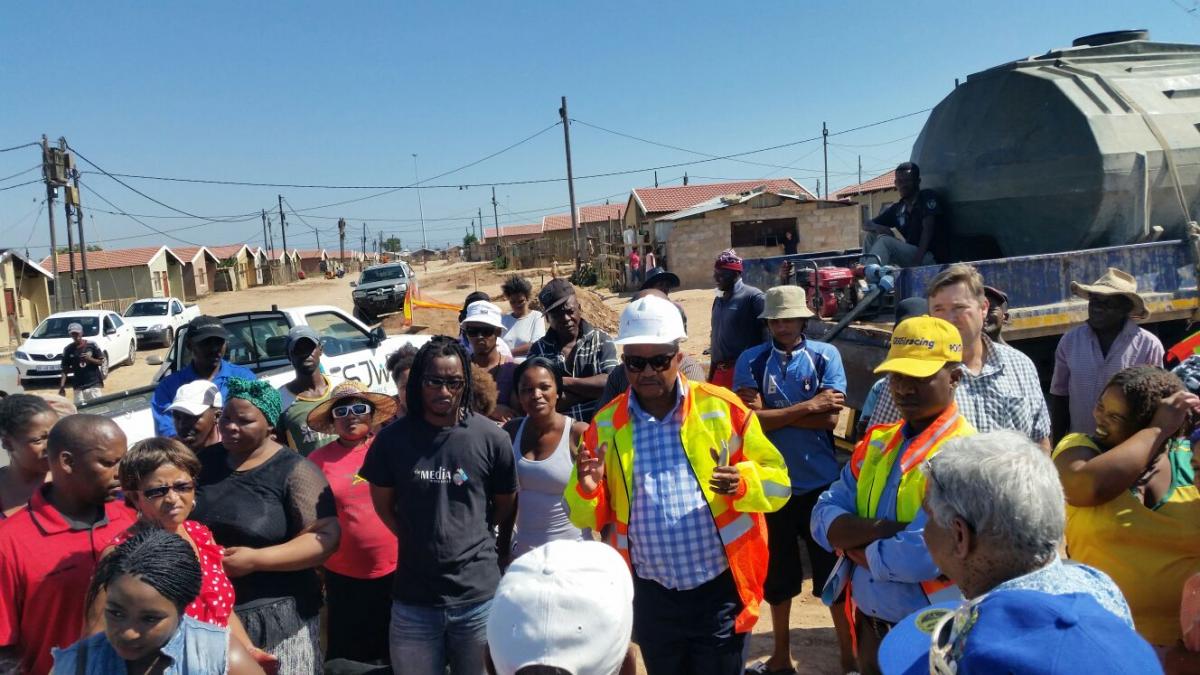
The area has a relatively flat terrain and is surrounded by salt pans and a high ground water table. During heavy rain the community of Missionvale experience challenges around flooding and poor access for cars and public transport.
“The area used to be an informal settlement and residents had to rely on themselves for services. Electricity has been laid on for them, with water services provided through stand pipes which are located approximately 200 meters from each household,” explained Chairperson of the Infrastructure and Engineering Portfolio at the municipality Councillor Andile Mfunda.
“The work concerning sanitation and water services is in the final stages of completion,” added Mfunda.
He said small business has also benefitted from the upgrade undertaken by the municipality.
“The municipality did not focus only on the delivery of these services to the people of Missionvale, but also providing support to emerging contractors has also been key.”
During the upgrade about 25 Small Medium Micro Enterprises (SMME) contractors benefited, while 98 people from the community of Missionvale were employed in different capacities.
The upgrade is divided into five phases all of which will see the building of sanitation infrastructure, water services, storm water, a pump station and a road.
Thozama Qayiso (51), a resident of Missionvale, said the community will have proper services like other people in other areas.
“We can now proudly say we are part of the Nelson Mandela Bay Municipality, because we will now also be enjoying the services that are enjoyed in other areas."
She added that seeing the leadership from the municipality in their area gave them hope.
"For leadership to come here and make commitments, when we already see work happening on the ground, is encouraging.
“It actually tells us as a community that the politicians that we have put into power do not only throw money at things and leave, they follow up to make sure that quality work is done, within the stipulated timeframes."
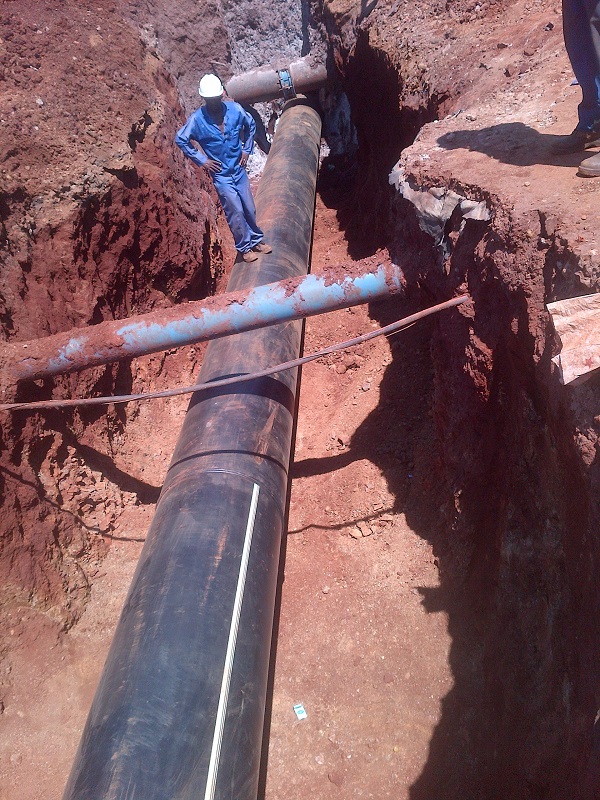 Mfunda added that the municipality would continue to work with the community to improve service delivery.
Mfunda added that the municipality would continue to work with the community to improve service delivery.
“I am also pleased that the community of Missionvale is working with the municipality to fast-track service delivery. Gone are the days when officials did as they pleased.
“Accountability is key for us to be able to deliver on our mandate. I have given them strict deadlines, because the issues in Missionvale are long overdue. Our people have suffered enough."
As part of the economic development of the area and its surrounds a shopping mall with retail stores was officially opened last year, creating a number of job opportunities for the people of the area.
"When we deliver services it has to be an integrated development so that we can achieve the true human settlements as prescribed by the Human Settlements Policy. Gone are the days when we build houses for people away from economic activity, schools and other amenities," he said.
The municipality is also working on providing electricity to informal settlements, on serviced sites, while the people wait for their houses.
NC focuses on youth development
NC focuses on youth development nthabiSTATE OF THE PROVINCE ADDRESS
The Northern Cape plans to increase efforts to empower young people in the province.
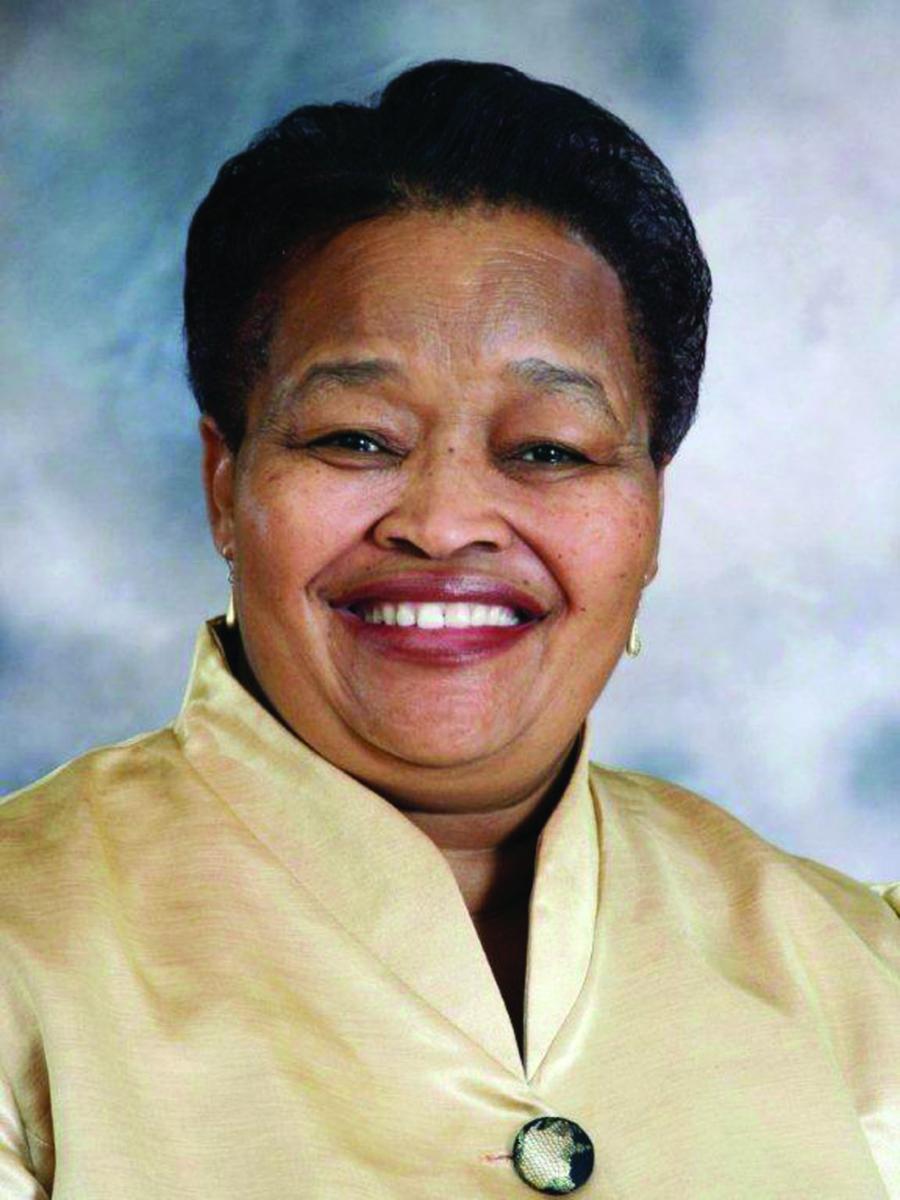 Speaking during the State of the Province Address, Premier Sylvia Lucas said her administration had completed a profile of young people in the province and was developing a strategy aimed at responding meaningfully to the challenges facing young people.
Speaking during the State of the Province Address, Premier Sylvia Lucas said her administration had completed a profile of young people in the province and was developing a strategy aimed at responding meaningfully to the challenges facing young people.
“As part of advancing young people we are providing apprenticeship, leanerships as well as bursaries. More and more of our young people in the Northern Cape have access to Technical and Vocational Education Training colleges (TVET) and universities.
“To this end we can report that in the previous financial year we spent over R54 million and we envisage to spend over R69.5 million in this current financial year,” said Premier Lucas.
Dealing with racism
In recent months, the country has experienced incidents of racism. To curb this, Premier Lucas said the provincial government would focus on fostering social cohesion and engaging communities.
“We will also be engaging various stakeholders in the non-government organisations,
labour, religious, business and farming sectors in order to ensure that we deal with this scourge of racism.
“It starts with each one of us to seriously look inside ourselves and realise that there is only one race and that is the human race,” said Premier Lucas.
Helping struggling farmers
The provincial government will spend millions to assist farmers affected by the drought.
“Approximately 2 000 smallholder farmers across the province are benefitting from drought relief of R23 million and we are expecting additional funding to the tune of R19 million from the national Department of Rural Development and Land Reform.”
She added that despite the tough conditions, the province should not lose hope and must work for a better tomorrow.
“We must not be deterred from laying the groundwork for a better tomorrow. Food security remains one of the key priorities of this administration and we will continue to do whatever is required to ensure that our fields and that we produce quality and quantity.”
Supporting agriculture
Premier Lucas said to deal with the challenge of food security, the provincial government will support three major initiatives.
The initiatives are the Vaalharts/Taung Revitalisation Scheme and Onseepkans Rivervalley, the Farmer Training programme and conditional grant funding in the form of Comprehensive Agricultural Support Programme (CASP) and Ilima/Letsema.
“In 2016/17 we will continue to support agricultural production particularly the identified value chains that have comparative advantage in the Province and contribute to economic and food security,” she added.
Creating jobs
Two companies have started with various projects that are expected to create jobs in the province. Vedanta has started with the development of the long awaited Gamsberg Zinc project
“Vedanta has committed substantial investment to this project. Since the announcement of the project, the next critical milestone at Gamsberg was achieved last year July, when Vedanta broke ground on the project.
“In a time that brings uncertainty to the mining industry, pre-development work is in full swing with about 300 workers on site of which more than 150 are from the Northern Cape.”
The project is expected to generate approximately 500 permanent jobs, with a potential to create a further 1 500 temporary jobs during the construction phase.
Similarly West Coast Resources, a diamond mining company with operations in the Namaqualand region of the province, is about to start with its operation.
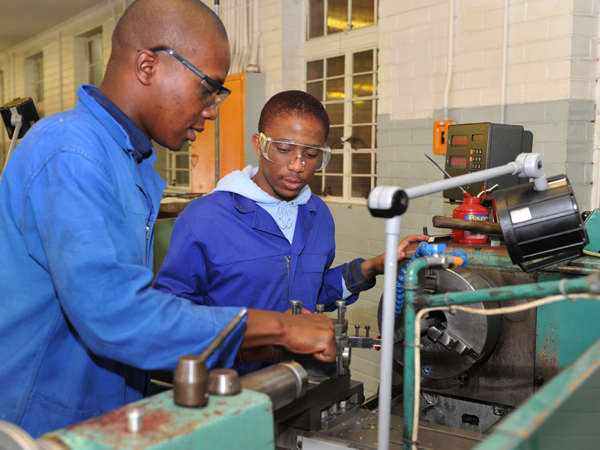 “To date, West Coast Resources has created a total of 220 jobs, 146 of which are permanent and 74 temporary (including construction workers and 13 mining trainees still completing their training programmes).
“To date, West Coast Resources has created a total of 220 jobs, 146 of which are permanent and 74 temporary (including construction workers and 13 mining trainees still completing their training programmes).
The company plans to create approximately 550 jobs, directly and indirectly, by 2021.
Promoting good governance, growing tourism
Promoting good governance, growing tourism Estelle GreeffState of the Province Address
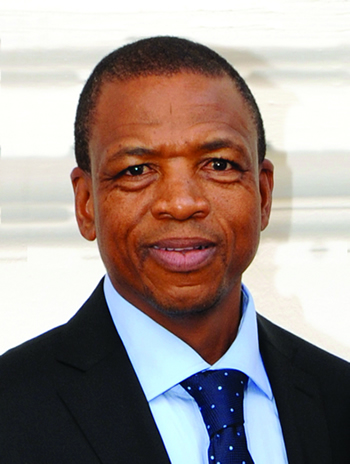 The North West Provincial Government will continue to rebrand, reposition and renew the province based on five pillars.
The North West Provincial Government will continue to rebrand, reposition and renew the province based on five pillars.
Premier Supra Mahumapelo said despite weaknesses in his administration, there had been some progress made on dealing with the challenges facing the people of the province.
“Much as we acknowledge and own up to our weaknesses, much progress has been registered in the last 21 months of this administration.”
“We are also aware and have drawn important lessons from mistakes and miscalculations that may have been committed as we sought to implement these good intentions.”
The Premier was speaking during the State of the Province Address.
Running a clean administration
Premier Mahumapelo said his administration will make sure that every person employed across the provincial government is accounted for.
“In order to reduce the salary bill, we have conducted staff verification for the Department of Education and Sports Management and the verification of the number and qualifications of all public servants across Provincial Departments would be concluded by March 2016.
“Should it be found that there are people in the employ of the state without necessary qualifications, such employees shall be relieved of their duties in line with all prescripts in the public service.”
He added that the various departments are working closely with other stakeholders in the public service to resolve reported cases of misconduct.
“We are working with the Public Service Commission and National Department of Public Service and Administration to ensure that people charged with theft, fraud and corruption are immediately denied the benefit of income when suspended.“
Developing villages
In line with the National Development Plan, the provincial government is developing a Village Development Plans targeting all the 767 villages of our province.
He added that though the plan is in its early stages, a plan targeting two villages is finalised.
“To date we have finalised two village development plans per municipality across all 23 municipalities, and intend completing all 767 plans by the end of May 2016.”
Over 13 000 qualifying households will get electricity. He added that the electrification of those houses will be done with an estimated cost of R279 million and will target villages, townships and small towns.
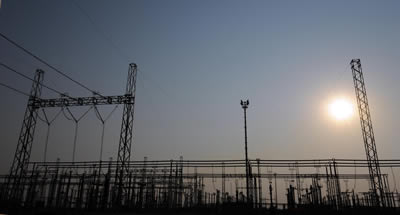 “In an effort to better our current delivery rate of 87 percent electrification roll out, 13 422 qualifying households in 104 villages, townships and small dorpies that never had electricity before across the Province will be electrified in 2016 at the cost of estimated R 279 million.”
“In an effort to better our current delivery rate of 87 percent electrification roll out, 13 422 qualifying households in 104 villages, townships and small dorpies that never had electricity before across the Province will be electrified in 2016 at the cost of estimated R 279 million.”
Increasing tourism in the province
In an effort to boost tourism in the province, the provincial administration has developed the Provincial Tourism Sector Strategy, Culture and heritage tourism strategy and the Events Tourism strategy.
“These strategies will give expression to the Arts, Culture and Tourism (ACT) developmental agenda of the North West Province and contribute to the country's priority areas of economic development.
“The province will embark on the implementation of strategies that talk to Rural and Social Tourism to develop and grow domestic tourism in Bokone-Bophirima. Focus will be on village, townships and small town tourism. We urge people not to wait for government but start working now.”
He added that his administration will do anything in their power to make sure the province grows.
“Bokone-Bophirima is rising again and will go higher and higher.”
Proteas ready to take on the world
Proteas ready to take on the world Estelle GreeffSport, arts and culture
Fresh from their Twenty20 International series win over England, the Proteas will compete with the best Twenty20 playing nations in the upcoming Twenty20 International World Cup.
 The tournament will be played across seven cities in India from 8 March to 3 April.
The tournament will be played across seven cities in India from 8 March to 3 April.
The Twenty20 International World Cup, in its sixth edition, will see the world’s big hitters trying to wrestle the trophy from the defending champions Sri Lanka who won the 2014 edition after beating India in the final.
As in the 2014 edition, it will will feature 16 teams. Ten teams qualified automatically through their status as full members of the International Cricket Council, while the other six teams qualified through the 2015 World Twenty20 Qualifier.
Two groups, of five teams each, will participate in the tournament. The top two teams in each group will advance to the semifinals and the winner of each semifinal will meet each other in the final.
The Proteas will play in the second round and will be in Group A alongside defending champions Sri Lanka, England, West Indies and the winner of the first round in Group B.
Fixtures:
South Africa v/s England
Date: 18 March 2016
Venue: Wankhede Stadium, Mumbai
South Africa v/s Winner Group B
Date: 20 March 2016
Venue: Wankhede Stadium, Mumbai
South Africa v/s West Indies
Date: 25 March 2016
Venue: Vidarbha Cricket Association Stadium, Nagpur
South Africa v/s Sri Lanka
Date: 28 March 2016
Venue: Kotla, Delhi
R450m to intensify drought relief
R450m to intensify drought relief Estelle GreeffSocial Development Minister Bathabile Dlamini says government has invested hundreds of millions of rands towards drought relief efforts.
Speaking during a Social Protection, Community and Human Development Cluster briefing recently, the Minister said the Department of Water and Sanitation had invested more than R450 million to intensify drought relief efforts.
“The resources allocated have been utilised for motorised water tankers, borehole drilling and rehabilitation as well as the improvement of dysfunctional infrastructure,” said Minister Dlamini.
As water shortages hit several areas across the country last year, government moved to assist those that were severely affected through the deployment of water tankers and the drilling of boreholes.
Minister Dlamini said additional water transfers from uThukela River to the Goedetrouw Dam, and from the Uthongathi River to the Hazelmere Dam were taking place continuously.
Also, water was still being released from the Lesotho Highlands Water Scheme into the Caledon River to supplement the water supply to Mangaung.
“Government, working in partnership with civil society, will ensure that all communities have access to water,” she said
Farmers who needed support were urged to contact government urgently to receive the necessary assistance.
During the State of the Nation Address (SoNA) in the National Assembly recently, President Zuma said with five provinces - North West, KwaZulu-Natal, Free State, Limpopo and Mpumalanga - already having been seriously affected by drought, government was responding to the water shortage challenges.
The President also commended the civil society initiative, Operation Hydrate, among others, who have gone out of their way to provide the much needed water resources to communities in distress.
He said the building of water infrastructure remained important for the country to expand access of water to residential and industrial consumers.
The first phase of the Mokolo and Crocodile Water Augmentation project in the Lephalale area in Limpopo was fully operational and would provide 30 million cubic meters of water per annum.
The raising of the Clan William Dam wall in the Western Cape, the President said, entailed raising the existing dam level by 13 metres to provide additional water supply.
Further, the Department of Water and Sanitation has begun its programme of training 15 000 young people as artisans to curb water wastage.
Countrywide drought road shows to be held
Agriculture, Forestry and Fisheries Minister Senzeni Zokwana and Deputy Minister Bheki Cele have started drought relief road shows across the country.
The road shows kicked off at the Ekulindeni Community Hall in the Gert Sibande District Municipality, in Mpumalanga.
The Mpumalanga MEC for Agriculture, Rural Development, Land and Environmental Affairs Andries Gamede hosted the first road show.
The Minister and the MEC were expected to distribute animal feed, water tanks and also engage farmers during the road shows.
“The Minister and the Deputy Minister will visit farmers affected by the drought to monitor progress made by provinces on the provision of drought relief measures,” said the department.
Government has established a drought response coordination mechanism comprised of the Technical and Inter-Ministerial Committee.
The department said the provincial government has responded through the re-prioritisation of the available resources.
“A comprehensive plan was developed and the department has spent R318 726 million on drought relief,” it said.
Solar project brings light to Lephalale
Solar project brings light to Lephalale andileThe 66 megawatt solar photovoltaic plant (PV) project site in Lephalale, Limpopo, will go a long way in boosting the country’s efforts to resolve the energy challenge.
Communications Minister Faith Muthambi visited the project situated about 5km east from South Africa’s border with Botswana, recently. The project is one of many highlighted by President Jacob Zuma in the Nine-Point Plan, which seeks to ignite growth and create jobs by focusing on resolving the energy challenge.
Minister Muthambi, who was accompanied by the District Mayor of Waterberg, Rosinah Mogotlane, and Lephalale Mayor Jack Maeko, said she was happy to hear that more than 200 people were employed at the solar plant. “The project management told us they are going to employ more people in 2016. The Nine-Point Plan has priority interventions that are job drivers and create employment by unlocking the potential of small businesses, cooperatives, township and rural enterprises.

“There are interventions that help the economy to grow such as building a good transport network in the country. Other interventions that are aimed at solving the challenges we face include ensuring a good energy supply,” she said. The CEO of Tom Burker Solar Park, Lamberto Dai Pra, said R850 billion had been invested in the project, with more than half a million solar panels that will supply power to about 40 000 South African families.
“We are glad to announce that we have already created jobs for 260 people and we are planning to employ more people next year. This is a massive project… The total area is 148 hectares. Our expected commissioning is February, while our planned capacity is 66 megawatts.
“The lifespan of our solar panels is 20 years and the connection to the Eskom grid will be in the Eskom 132kV/22kV station through a step-up substation located here, which forms part of the project site.
“There will be no need to build further power lines traversing other properties or to acquire servitude rights or further authorisations,” he said. Some of the communities, which will benefit from the project are Ga-Seleka, Tlapeng, Rietfontein, Mothlasedi, Moong, Morwe, Botshabelo, Madibaneng and Letlora.
Mayor Maeko said 99 per cent of the people working at the project were local residents. Local entrepreneurs will also benefit from the project. “As a municipality, we want our people to benefit from all the economic development happening in their area.”
Headman Phetogo Seleka said he was happy to witness government initiatives that improve the lives of his people. “Things are happening here. Government is also expanding our local main road, thus creating jobs for the unemployed… I’m so excited to see all these developments taking place in my area,” he said.
Local resident Collins Maeteletja said: “With all these developments in the whole of Lephalale, the challenge now is on our youth to be educated because they won’t benefit if they are not educated but people from far will come and take over all these opportunities.”
WC focuses on skills development
WC focuses on skills development nthabiThe Western Cape provincial government plans on investing R534 million in skills development and higher education.
 Premier Helen Zille revealed this during her State of the Province Address, which she delivered recently.
Premier Helen Zille revealed this during her State of the Province Address, which she delivered recently.
“Over the next three years, at least R534 million will be committed by the Western Cape Government and its partners, the Sector Education and Training Authorities, as well as the Department of Higher Education and Training through public Technical and Vocational Education and Training (TVET) colleges.”
She said the aim was to grow intermediate level skills, increase apprenticeships and promote TVET qualifications.
Critical to the success of upscaling skills development is the involvement of the private sector, Premier Zille added.
“We therefore call on business to work in partnership with us to increase the apprenticeship opportunities available in the province. And we thank them for their commitment to our partnership programme in the past.”
Supporting small and medium enterprises
She said over the years the province had committed to supporting small and medium enterprises.
“We have invested R50 million in over 300 enterprises in the last three years via our Enterprise Development Unit in partnership with the National Empowerment Fund.
“The enterprises who received our help are showing a 15-20 percent increase in turnover and have added 700 new jobs between them.”
She noted that provincial department of agriculture partners with the private sector to support emerging smallholder and commercial farmers to gain access to markets.
“Over 250 such smallholder and commercial farmers benefited from this support in the last five years, an investment of over R1 billion.”
Priority economic sectors
Premier Zille said the provincial government had identified a set of priority economic sectors with the potential for accelerated growth and job creation. They include tourism, oil and gas, and agri-processing.
“The tourism sector today employs 200 000 people, with a Gross Value Add (GVA) of R17 billion to the provincial economy.”
The province aims to add a further 120 000 jobs by 2019 under a high-growth scenario, increasing GVA by 65 percent to R28 billion.
The conference industry is essential to this growth. In the past five years, over 120 conference bids with an economic impact of R25.4 billion have been secured in the Western Cape.
“We are aiming to increase these figures through a dedicated programme to attract new conferences, and boost the numbers of delegates who attend.”
She said the agri-processing target is to create up to an additional 100 000 formal jobs by 2019, with a 126 per cent increase in GVA to R26 billion per year.
A vital resource for the success of agri-processing is water. The Greater Brandvlei Irrigation Project is a mega rural development that aims to irrigate another 4 400 hectares of land in the Breede River and Langeberg Municipalities.
“It is estimated that this project will create 8 000 primary and 6 500 secondary rural jobs.”
She said the third sector, oil and gas, is going through a period of oil price volatility.
“Companies need to be cost efficient in their operations during this time. It is important that we ensure that it is easy and cost-effective for investors to do business in the Saldanha Industrial Development Zone (IDC).
“We foresee that a further 60 000 jobs can be created in this industry by 2019, provided we follow a high growth scenario, which requires that we create the right conditions for investment.”
Education, HEALTH
Premier Zille said given the rate of increase in the Western Cape’s pupil numbers, the provincial department of education would struggle to afford the number of teachers.
“Which means that e-Learning will have to play an increasingly important complementary role to supplement the teachers in our schools.
“We aim to have free high speed internet available in all schools by the end of 2016. We delivered over 3 300 smart classrooms in the 2014/15 financial year and will have delivered a great deal more by the end of this financial year in April.”
More than R800 million for health facilities Zille said the province had committed more than R800 million towards health infrastructure over the past three years.
“Almost 40 percent of this budget will go towards maintaining our existing facilities to the highest possible standard.
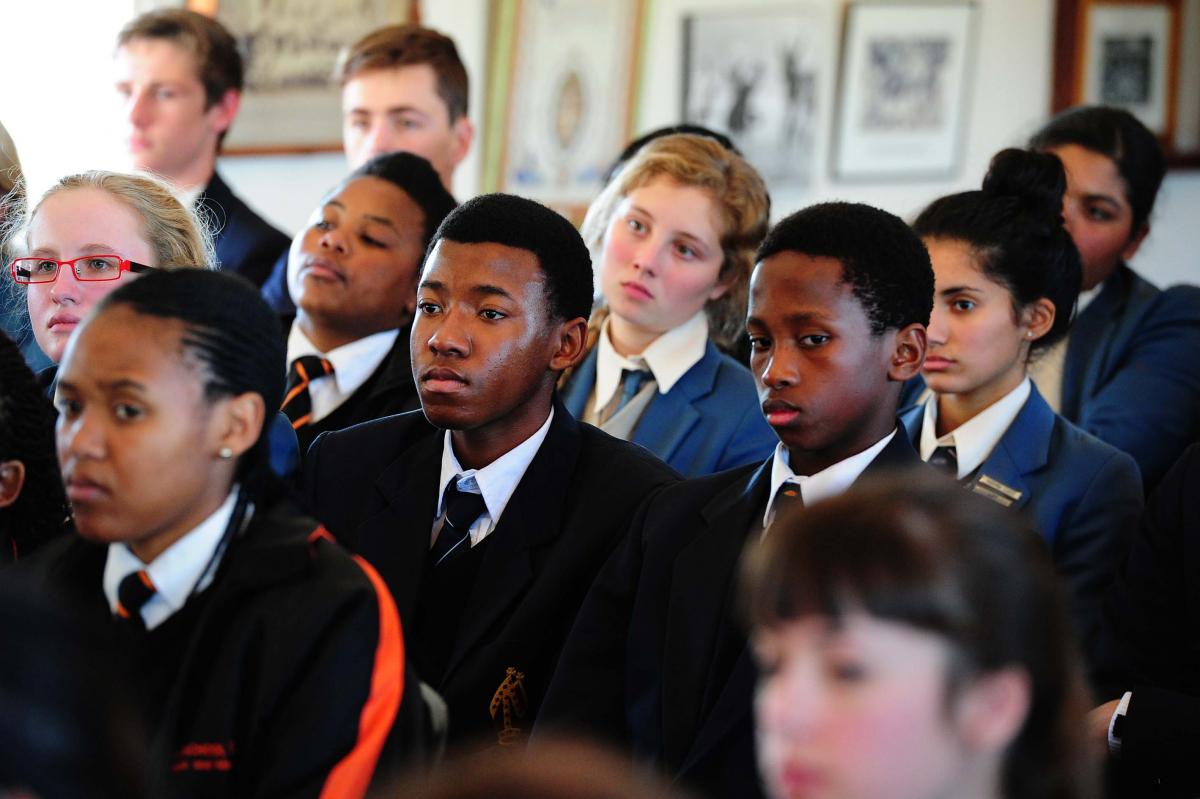 “Given our budget limitations, we understand how vital it is to strengthen primary health care, and to use our limited resources as efficiently as possible,” she said.
“Given our budget limitations, we understand how vital it is to strengthen primary health care, and to use our limited resources as efficiently as possible,” she said.
Working together to grow the economy
Working together to grow the economy JoyAs the global and local economy faces challenging times, Finance Minister Pravin Gordhan has cautioned South Africans to tighten their belts and work together.
Delivering his Budget Speech recently, Minister Gordhan announced measures that aim to put the country’s economy on the right path. These measures include clamping down on government spending by freezing new appointments in the public sector. Along with other measures, this will help government save R25 billion in spending over the next three years.
Government also plans to raise R18 billion more in taxes in 2016/17, partly through a slight increase in personal income tax, which will be felt mostly by higher earners. However, no cuts have been made in spending on social grants.
Government will also consider closing or merging those state-owned enterprises that fail to perform, said Minister Gordhan.
The measures outlined by the Finance Minister in the Budget come as the economy is expected to grow at just 0.9 percent this year, down from an expected 1.3 percent for 2015.
Minister Gordhan has a tough job in trying to avoid a sovereign ratings downgrade, which will make it more expensive for government to borrow money to finance its deficit.
“We cannot spend money we do not have. We cannot borrow beyond our ability to repay. Until we can ignite growth and generate more revenue, we have to be tough on ourselves,” he stressed.
To do so, the deficit – the difference between government spending and revenue – will be lowered to 3.2 percent of spending in 2016/17, from the 3.9 percent forecast for the 2015/16 year.
Managing government spending
Minister Gordhan said all appointments for vacant government posts (except those for teachers, nurses, doctors, police officers and other critical positions) would be frozen from 1 April. This will help reduce the public sector wage bill by R7.2 billion. Departments will have to justify any new appointments by submitting revised human resource plans.
In addition, new rules will limit what government spends on travel and accommodation (expected to save R1.6 billion over three years), conferences and car purchases for political office bearers.
All suppliers and government departments will also have to use an electronic procurement portal (eTenders portal) from 1 April.This will make procurement more transparent and lower costs for suppliers and the state. By 2018/19 it is expected to save the state
R25 billion a year of its R500 billion procurement spend, through lower advertising and administrative costs.
All companies that wish to do business with government must be registered on the central supplier database from 1 April for transactions with national and provincial government and their entities, and from 1 July for municipalities.
Taxes
Minister Gordhan indicated that government aims to raise taxes by a total of R48 billion over the next three years – R18 billion in 2016/17 and a further R15 billion in each of the two following financial years.
The R18 billion in tax increases in 2016/17 will help to fill the gap left by the government missing its tax collections target by R11.6 billion. The increases will partly be achieved through fiscal drag and increases in environmental taxes and the fuel levy.
Fiscal drag is what happens when inflation bumps some tax payers to a higher tax bracket, resulting in them having to pay more in tax. To avoid this, National Treasury usually adjusts the tax brackets every year.
Duties on cigarettes and drink, however will be raised by between six and
8.5 percent, while the fuel levy will go up 30c and transfer duties on properties above
R10 million increases from 11 percent to
13 percent.
In addition the tyre levy, to finance recycling programmes, will be raised as will levies on incandescent light bulbs (from R4 to R6), plastic bags (6c to 8c) and vehicle emissions.
Minister Gordhan has also proposed a tax on fizzy drinks effective from April 2017.
Tackling drought
Minister Gordhan said over the next three years R1.1 billion will be reprioritised to
tackle the drought, through interventions such as drilling boreholes, distributing animal feed, moving cattle herds and transporting potable water to hard-hit areas.
The state will also invest R865 billion in infrastructure projects over the next three years.
Investing in cities
The Minister also highlighted the number of projects taking place in cities across the country aimed at reshaping transport systems in these areas. Bus Rapid Transit systems are operational and expanding in Johannesburg, Tshwane, Cape Town and George, and will be extended to Ekurhuleni and eThekwini this year.
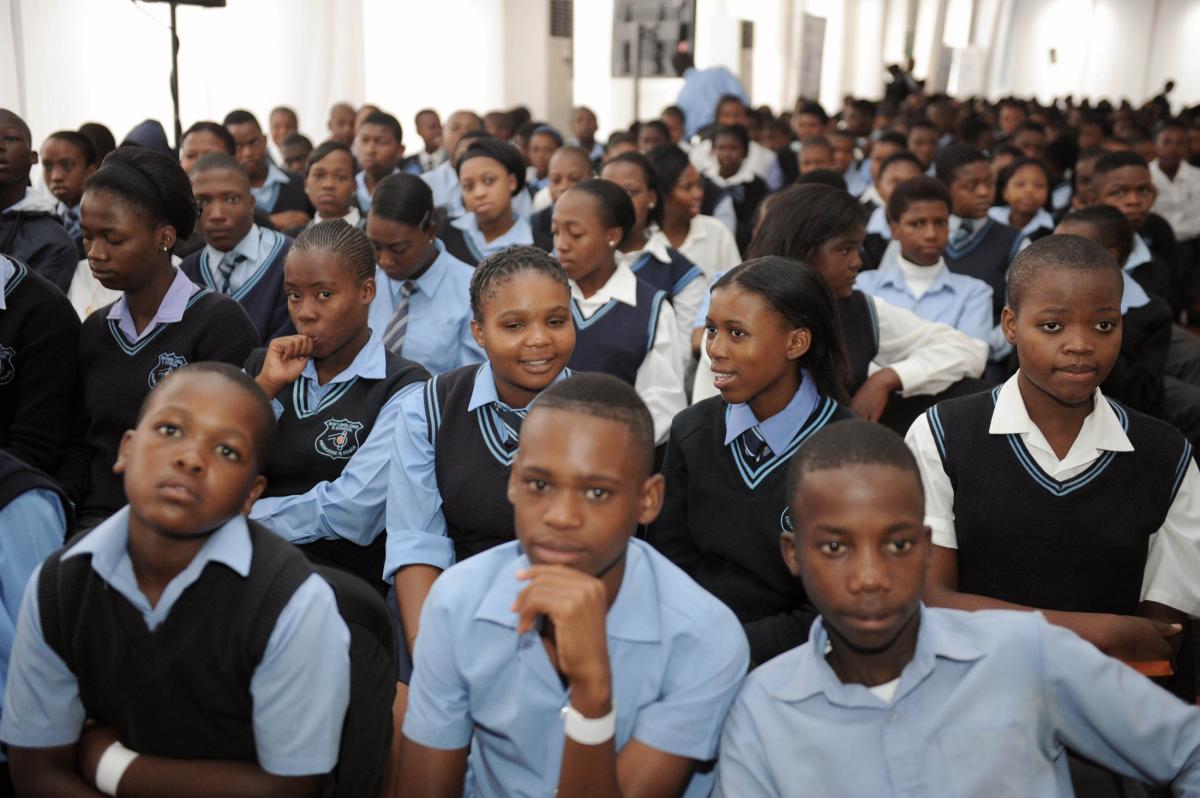
“About R6 billion is allocated to this programme in 2016/17. Improvements to rail rolling stock and infrastructure will begin to improve the daily travel experience for commuters,” he said.
Over 90 integrated land development projects valued at more than R130 billion are in progress:
- In eThekwini, the Cornubia node comprises 25 000 housing units. An inner city regeneration programme is also underway, including projects at Bridge City, Centrum, the Point and the interconnecting corridor.
- In the Tembisa Corridor, in Ekurhuleni, R6.5 billion in public investment will leverage R8 billion in private sector investment to deliver housing, commercial and office facilities.
- In Cape Town, the N2 Gateway housing programme as well as the redevelopment of the Voortrekker Road Corridor, Conradie Hospital, the Athlone Power Station and other sites.
- In Tshwane, investments are focused on the Mabopane Station Hub, which is the gateway to the north for more than 150 000 passengers a day and has an informal market accommodating approximately 2 500 traders.
- In Manguang, the R2.6 billion mixed-use Airport Development Node is in construction. An inner city residential development is planned and the Vista Park and Brandkop projects will yield over 8 500 housing units at a total development cost of over R1.9 billion.
- In Johannesburg, the “Corridors of Freedom” connecting Soweto, Alexandra, Sandton and the Johannesburg CDB bring together public transport improvements, social amenities and partnerships with property developers to increase settlement densities and improve social mobility.
Increase in social spending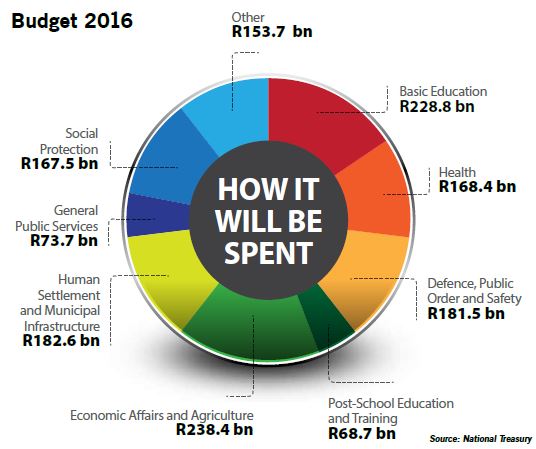
Despite the tighter times, spending on social grants will increase by R11.5 billion over the next three years, reaching R165 billion in 2018/19. State old-age and disability grants will increase from R1 415 to R1 505, while grants for war veterans and people over 75 years increase from R1 435 to R1 525. Foster-care grants rise to R890 and child-support grants from R330 to R350.
In addition, R4.5 billion has been allocated to the National Health Insurance (NHI) over the next three years. Government is currently implementing NHI at 390 sites.
A further R984 million has also been added to expand coverage of HIV and AIDS treatment and prevention, with R740 million for the treatment of tuberculosis. An additional R475 million has been allocated to the Department of Small Business Development over the next three years.
Following government’s agreement to meet demands from students to not increase students' fees this year, R16.3 billion has been allocated to higher education.
An additional allocation of R813 million for Early Childhood Development (ECD) is proposed to increase the number of children in ECD centres by 104 000 over the next three years.
Encouraging South Africans to save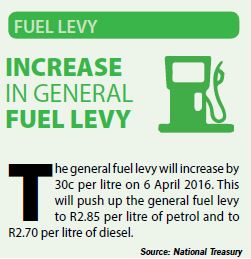
To encourage more South Africans to save, National Treasury last year introduced tax-free savings accounts. These allow one to get tax-free savings of up to R30 000 a year.
Minister Gordhan said so far about 150 000 accounts have been opened, with savings totalling R1 billion.
In February, Cabinet announced it would postpone the annuitisation requirement for provident fund members for two years to allow for further consultation with key stakeholders.
Minister Gordhan, however, said the tax benefits will continue to be implemented from 1 March for all retirement fund contributions, including for provident funds. These include a higher tax deduction for of 27.5 per cent for amounts of up to R350 000 a year contributed to pension, provident and retirement annuity funds.
Working together to make SA an even better place
Working together to make SA an even better place JoyThe visitor registers at the Union Buildings and Sefako Makgatho Presidential Guesthouse in Pretoria – and government premises across our country – tell an important story about our country’s present and its future.
These registers bear the evidence of how government is reaching out to various sectors of our economy and society – or at the very least responding to meeting requests from such sectors – as, together, we move South Africa forward.
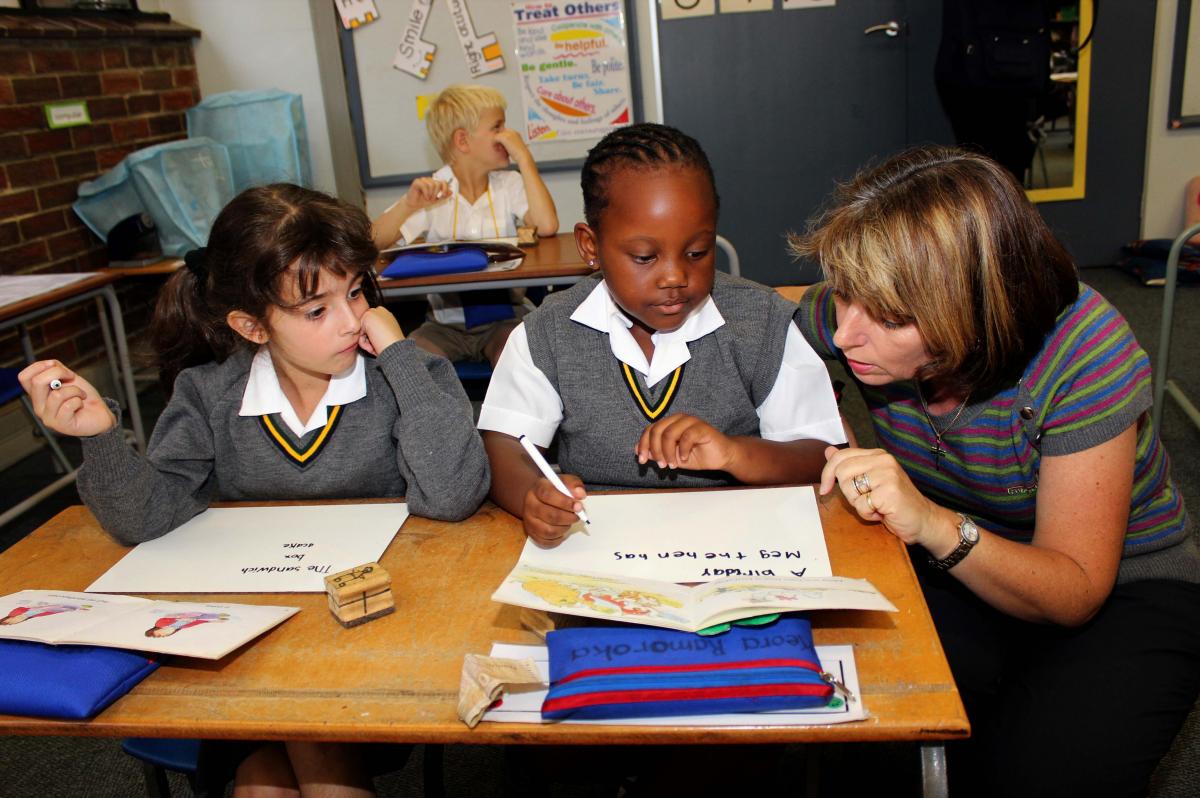
Since the beginning of this year, government has in various ways and on various occasions had in-depth consultations with business leadership in South Africa to work out ways in which we can release some of the severe pressure under which the South African economy finds itself.
In January, when we braved the cold in Davos, Switzerland, to present the case of the South African economy to the world’s political and business leadership, government and the South African private sector did so in unison under the Brand South Africa flag.
Late last year, the Union Buildings was the site of a high-level engagement between government and representatives of university executives and student leadership as we grappled with making higher education more affordable for academically deserving young South Africans.
Partnership and having all hands and brains on deck in these tough times is the key to developing solutions and creating opportunity for all South Africans.
This is not just a response to our economic reality, but it is also part of our ongoing effort to bring South Africans from various backgrounds and persuasions together in building a cohesive and collaborative South Africa in which we can all share a vision of our future and work together to make this a reality.
As South Africans, we love to discuss and analyse our problems, and point fingers in all sorts of directions before – as an old jazz song says – “we pick ourselves up, dust ourselves off and start all over again”.
We can start all over again.
Government’s consultations with various social partners in the past few months have given us the benefit of practical ideas from social partners who want to see South Africa succeed and who want to see an end to poverty, unemployment and inequality in our country.
Some of the challenges in our economy are the result of the global downturn; other challenges entail things we can improve, accelerate or fix ourselves.
The 2016 Budget tabled recently by Finance Minister Pravin Gordhan reflects our effort to keep – and get – our house in order to provide some shelter from the global storm.
Based on belief that when opportunity knocks, it is education that turns the key, you will see from the Budget that we are investing in education more than any other item in the Budget.
To date, government spends R1,8 billion on early childhood development for children up to the age of four, reaching more than a million children.
"More than nine million learners attend school without paying fees, and the same children receive free daily meals to improve concentration and participation in class. In promoting technical and vocational education in our schools, R1 billion has been made available for all provinces through the Mathematics, Science and Technology Conditional Grant."

More than nine million learners attend school without paying fees, and the same children receive free daily meals to improve concentration and participation in class.
In promoting technical and vocational education in our schools, R1 billion has been made available for all provinces through the Mathematics, Science and Technology Conditional Grant. This will help us move towards the National Development Plan goal of producing 30 000 artisans per year.
Through the Operation Phakisa in Basic Education, which focuses on information and communication technologies, government is due to connect 2 892 schools to the internet this year and also train teachers and learners in the use of technology to improve learning and teaching.
Government is also building three new universities and 12 technical education and training colleges.
Government, the private sector and civil society at large agree that this investment in improving the skills of our people and therefore increasing their chances of success in life is the right thing to do in the midst of economic difficulty.
A skilled nation is one that will create opportunity and income for itself and one that will expand South Africa’s presence in the world economy and global markets.
However, for us as South Africans, success cannot be measured in rand, cents, dollar or yuan alone.
Given our history, success for us means growing and developing together as compatriots, neighbours, colleagues and friends, regardless of background or belief.
It is for this reason that we will in 2016 pay close attention to social cohesion, nation-building and the elimination of racism.
We must build tolerance and understanding but we must also come down hard on those who hold onto racist thoughts and behaviours and who tragically are passing these on to young children who have been born into our society after the transition of 1994.
In the course of nation-building, government will again reach out to various sectors of society and work with various organisations representing all South Africans.
2016 is a year in which government will reach out to social partners and invite social partners to pass through our open doors to express any frustrations they may have, but more specifically to explore their ideas for moving South Africa forward.
This means visitor registers in many sectors and sites of our country will reflect the deepening partnership between government and the people in making South Africa an even better place.
